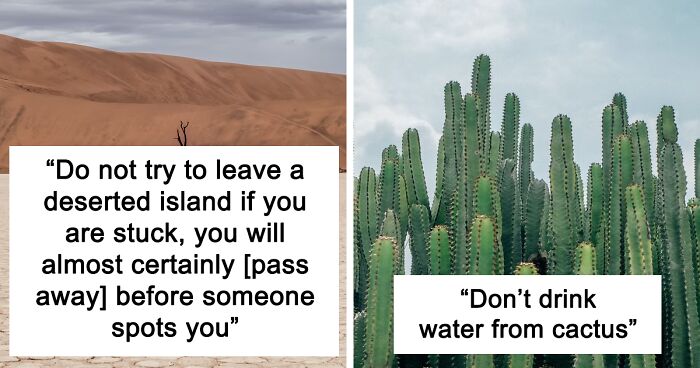If there’s anything we learned from the reality show Man vs Wild, it's that if you happen to be alone in the unlivable wilderness, you gotta have a fair share of survival hacks at hand. Things like: life begins and ends with duct tape, snares are your friends, or the PRWF acronym (Protection, Rescue, Water, Food).
And even if the chances that you and I will ever set foot in the Siberian taiga and will have to survive on eating insects and roots are pretty low, knowledge is power, and survival knowledge is the iron pump of it.
But according to this thread posted on r/AskReddit, not all the common survival tips are actually that useful. People argue that many can do more harm than good, so common sense, a rational mind, and fact-proofing have to always come first. “What is a survival myth that is completely wrong and could get you killed?” the Redditor Standardgenre45 asked people, and the responses flooded in.
Take them with a pinch of salt, or a bag too, or best, scroll down through our in-depth interview with Tony Nester, a survival instructor and multiple-book author who has been teaching wilderness survival and bushcraft courses for the past 30 years. Nester has worked with a diverse range of groups and folks from military special operations units to the Ojibwa Tribe, the Discovery and Travel Channels, and served as a consultant on the film Into the Wild. He happily shared some amazing survival tips and busted some common myths, so take out your notebooks, everyone!

This post may include affiliate links.
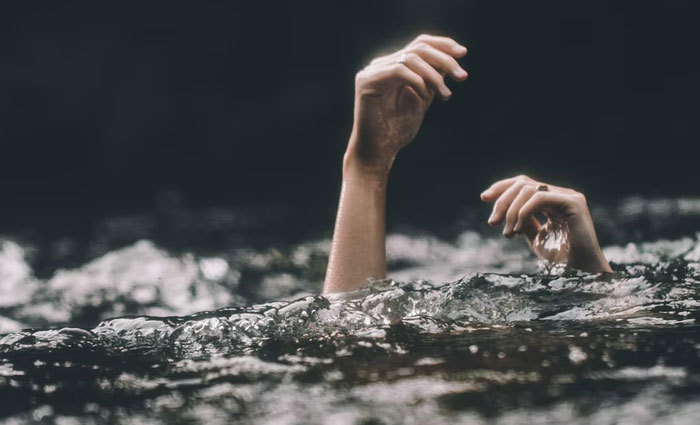 Perhaps not really a myth, but something people may think is true after watching people get rescued from the water on TV. "get them breathing and send them on their merry way"
If you rescue someone from a near drowning, they still need to go to the hospital, even though they are safely on land now.
The lungs are coated with a slippery mucous like substance called a surfactant. It's kind of a lubricant and it keeps them from collapsing and sticking to themselves. If they ingested a lot of water into the lungs, chances are they have washed away the surfactant. Their lungs could collapse at any moment and their ability to uptake oxygen is reduced. Get the survivor on oxygen.
source: rescue trained scuba diver here.
Perhaps not really a myth, but something people may think is true after watching people get rescued from the water on TV. "get them breathing and send them on their merry way"
If you rescue someone from a near drowning, they still need to go to the hospital, even though they are safely on land now.
The lungs are coated with a slippery mucous like substance called a surfactant. It's kind of a lubricant and it keeps them from collapsing and sticking to themselves. If they ingested a lot of water into the lungs, chances are they have washed away the surfactant. Their lungs could collapse at any moment and their ability to uptake oxygen is reduced. Get the survivor on oxygen.
source: rescue trained scuba diver here.
Forget that i called that Dry Drowning, as it's actually not that (And now i can feel stupid)
This is corollary to: All head injuries go to ER. Please. You can be fine till you're not. And then you're really not fine. See: Natasha Richardson.
I always loved how on tv people cough and instantly wake up at the scene when they are resuscitated...20 + years in the medical field 13 years in an ER I have never seen anyone wake up at the scene or even in the ER for that matter. The brain needs time to recover from lack of oxygen like that.
In order to find out more about survival techniques and myths about them, Bored Panda reached out to Tony Nester, a famous outdoor survival instructor and multiple book author who shared an in-depth glimpse into what we actually need to know in order to survive out there.
“For the past 30 years, I have made my living teaching wilderness survival and bushcraft courses in Arizona and Colorado as well as around the U.S.,” Nester told us. He grew up in Michigan and had a lot of mentors in the outdoors, eventually working in the adventure education field while getting his BA in anthropology. Eventually, his path took him on to “guiding extended desert survival treks which led me to a love of the Southwest.”
“It’s my goal to provide both practical skills and field-tested information so hikers, explorers and backpackers can have some self-reliance methods to fall back on in case they are ever lost, injured in the backcountry or just run into Murphy’s Law out in the wilds,” he said.
 I don't know if this counts as survival myth but you don't actually have to (and probably shouldn't) wait 48 hours to report someone as missing. Those first hours are crucial so report someone as missing immediately.
I don't know if this counts as survival myth but you don't actually have to (and probably shouldn't) wait 48 hours to report someone as missing. Those first hours are crucial so report someone as missing immediately.
Yeah, the TV shows are all wrong and they do this whole 24-48 hours for dramatic effect. If someone is missing, you report it immediately. Do not wait.
Is this only from TV shows or there used to be a law like this in the past though?
Load More Replies...Some probably do try to fob you off but if them being missing is very out of character for whatever reason then report it.
Indeed. If you're taking care of an elderly person, if you go to check on them in their home, where they always are, and they're not there, you don't wait 48 hrs, you call immediately.
I am an elderly person. I go out at least 3 times a week to do errands and say hello. If i have food and wine it is no problem to stay home. I sometimes make a little noise so my neighbors can know that i am still alive. If i ever wander off and fall into a ditch, i hope my neighbors would come looking for me.
Load More Replies...Melbourne australia here. I was in this exact situation over Christmas just gone with a missing friend. I approached police and their response was if the person is not at known risk of self harm or harm from others, then I was to wait 48hrs before contacting them. You can certainly try to report it earlier but you’ll still have to wait 48hrs, before the police will do anything about it.
You will be surprised that Police themselves can be misinformed about their duties. All a complainant has to explain is that it's totally out of character for that person to be out of touch for that long. Happened in London with the two sisters that were reported missing after a birthday party who later turned out to be murdered exactly where the police were told they were seen last.
Load More Replies...Why am I downvoted? If it is an endangered adult or minor child, you can report immediately, and you can make media appeals immediately. The paperwork may have to wait 24-48 for everyone else. I don't agree with this, but it's the policy of police, not me.
Load More Replies...Good thing dogs can’t use phones or talk. “My owner went out of the house 10 minutes ago and isn’t home yet!!”
It does depend, If it's a child or less able person, if they just habitually don't tell you where they are going or are often late, or conversely are very reliable, or if you have reason to suspect they might be in danger (medical/suicide/attack), etc.
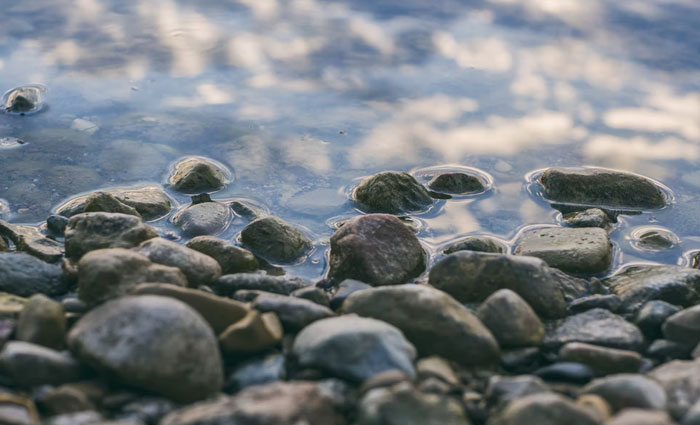 Not so much a survival myth but a common camping mistake that an amateur survivalist might make: never use rocks that are in or close to a river bed for a campfire. Ever. Many get tiny bits of water trapped inside the rocks, then when heated by a fire, it turns into a lovely grenade due to the water being heated amd turned intosteam, expanding quickly. Hot bits of rock everywhere. People like river rocks because they are smooth and easy to cook off of and they look cool, but they are crazy dangerous. Plenty of rocks all around. Find another.
Not so much a survival myth but a common camping mistake that an amateur survivalist might make: never use rocks that are in or close to a river bed for a campfire. Ever. Many get tiny bits of water trapped inside the rocks, then when heated by a fire, it turns into a lovely grenade due to the water being heated amd turned intosteam, expanding quickly. Hot bits of rock everywhere. People like river rocks because they are smooth and easy to cook off of and they look cool, but they are crazy dangerous. Plenty of rocks all around. Find another.
Never use sandstone from anywhere, for the same reason. It WILL explode and send shrapnel.
I actually saw it happen once! I was a kid on camp and they told us don't put river rocks in the fire so of course a kid immediately did it. BANG.
Big reason why people should give kids the reason for rules instead of just saying don't do it!
Load More Replies...This happened to me cooking on bricks. One exploded and blew everything into the air. Never did get my bbq banana.
I would like to see this actually happen... it sounds like a myth based on partial science. It might be true if you used a very soft and porus rock like volcanic stone.
I've seen it. And the science is solid. Rapidly heating molecules of water trapped in porous rock may vent as steam ---- ouch! burn! ---- or could, if they heat very rapidly, cause an increase of pressure (steam!) and boom! I've seen it. It's most common in sedimentary rocks like sandstone, limestone, shale (shale is evil), but I've seen rocks explosively crack when moved from a cold river next to a hot fire in my area, where it's predominantly igneous or metamorphic. TLDR: Dont' risk it. Also, heating rock can cause it to "shear" anyway. That's why you don't make fires under rock overhangs.
Load More Replies...And it's so disappointing when you turn up and there is one all ready, then you read that it's a total fire ban day- but better save than sorry :)
Load More Replies... 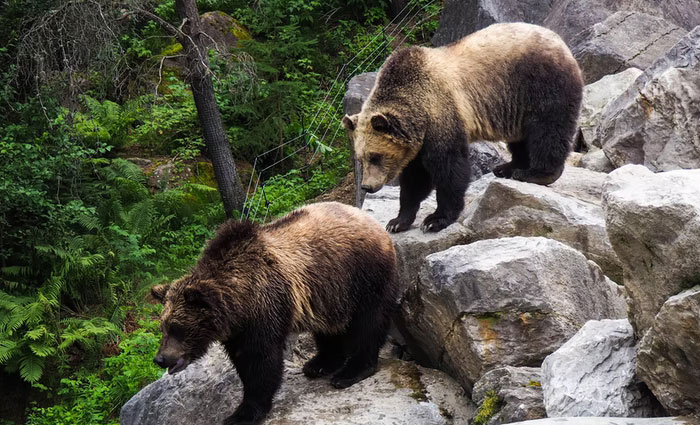 If a bear finds you, run down hill. They can't run down hill.
I have to imagine some ass**le started this when he wanted to watch his other ass**le friend get mauled to death. They can absolutely run down hill and they are SHOCKINGLY FAST. They can also run up trees terrifyingly fast as well.
FYI the mama bear thing really applies to brown bears. Black bear attacks are incredibly rare and usually only from hungry and/or aggressive males. I've done a lot of wildlife photography of bears and I've spoken to a lot of wildlife biologists about this. When I photograph black bears and their cubs they are very docile. If something or you spook them, they will chase their cubs up a tree and then guard the bottom of the tree. They won't attack you. If it's a male black bear they'll likely wonder on but always keep distance. If you encounter a black bear make as much noise as possible and make yourself seem as big as possible. If you encounter a brown bear start very slowly backing up. Never run away and never turn your back. If it's going to attack you and there's nothing nothing can do, lay on your stomach with your hands over the back of your neck and play dead. They primarily attack when they are surprised or threatened. If the surprise/threat is gone they will most likely move on.
But please for the love of God never run away and never climb a tree.
If a bear finds you, run down hill. They can't run down hill.
I have to imagine some ass**le started this when he wanted to watch his other ass**le friend get mauled to death. They can absolutely run down hill and they are SHOCKINGLY FAST. They can also run up trees terrifyingly fast as well.
FYI the mama bear thing really applies to brown bears. Black bear attacks are incredibly rare and usually only from hungry and/or aggressive males. I've done a lot of wildlife photography of bears and I've spoken to a lot of wildlife biologists about this. When I photograph black bears and their cubs they are very docile. If something or you spook them, they will chase their cubs up a tree and then guard the bottom of the tree. They won't attack you. If it's a male black bear they'll likely wonder on but always keep distance. If you encounter a black bear make as much noise as possible and make yourself seem as big as possible. If you encounter a brown bear start very slowly backing up. Never run away and never turn your back. If it's going to attack you and there's nothing nothing can do, lay on your stomach with your hands over the back of your neck and play dead. They primarily attack when they are surprised or threatened. If the surprise/threat is gone they will most likely move on.
But please for the love of God never run away and never climb a tree.
There is a joke. If You and your friend are being attacked by bear - dont try outrun bear. Try to outrun your friend :)
Want to know you're F****d.???..Usain Bolt is the friend.
Load More Replies...When I was a kid, I saw a woman pick up a tiny black bear cub that was rummaging around a campsite dumpster (this was back in the early 60s). People around started telling the woman to put the cub down but she didn't. Mamma was just the other side of the dumpster & charged over, reared up, and smacked the woman down hard, just once. Then mamma & cub hustled off into the forest. Whole thing took hardly any time. The woman had her collarbone broken & some gouges from mamma's claws but everyone said she got off easy, it was a good thing it was a black bear.
That sounds like a true story. She did get off easy.
Load More Replies...Never run ever. All predators from dogs to bears, bobcats and coyotes all will have their prey drive triggered if you run
Back up slowly and maintain eye contact. Hope it hasn't got a mate sussing you out from behind.
Load More Replies...As they say: if it's black fight back, if it's brown lay down and if it's white then goodnight!! Also if it's gummy put it in your tummy😅
Load More Replies...Here in somewhat rural New England, we get black bears in our yard all the time. Generally, if you just make some noise, they'll go elsewhere. Don't get me wrong; I still wouldn't go near one just in case.
I live in BC and its very conmon to see black and brown bears, if you leave them alone they generally leave you alone. Watch out for cubs, mum is close by and may get aggressive if she thinks your a threat. Grizzly bears (pictured) are the ones you need to watch out for. Normally only in the bush, but extremely territorial. I have seen people that have survived grizzly attacks and its not pretty.
It turns out that 80% of the folks who get stranded or lost are dayhikers. Because of that, Nester focuses on what he calls the Big 5 Survival Priorities of Shelter, Water, Fire, First-Aid, and Signaling. “Planning for these areas and having the right type of items in your survival kit will help you endure a 24-72 wilderness mishap until searchers can locate you,” he added.
Nester also teaches 3-7 day bushcraft courses which focus on both modern and traditional skills such as edible plants, tracking, axmanship, land navigation, friction firemaking (“not what you want to do when you’re lost, so carry a lighter and matches!” he warned), and woodcarving skills.
“By their nature, these skills involve more time developing a connection to the landscape and understanding the bigger picture of how humans always directly relied on the natural world to meet all their needs. Where survival is about coping with a backcountry emergency and gutting it out until the search party arrives, bushcraft is about using a handful of traditional tools and methods for forging a deeper relationship with the wilds and how we have always depended on the land.”
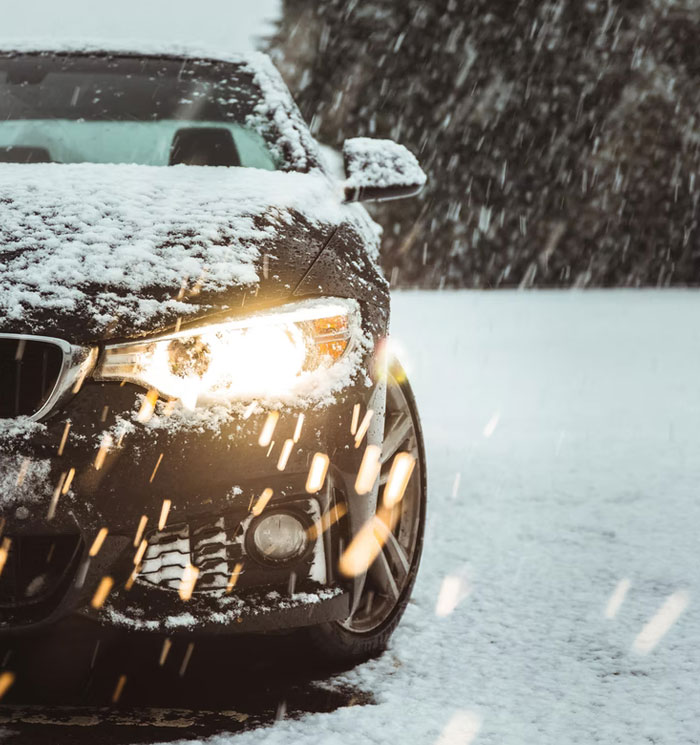 If trapped/lost in snowstorm while driving: A) Do Not Leave Your Car. You are literally inside a shelter ALREADY. A SHINY one! It is easier to spot a snow-covered vehicle, than a snow-covered corpse.
B) Do Not Keep Your Engine Running. It's a snowstorm, your exhaust will block, you will nap. Snugga-bugga, you're dead. Wait for storm to pass, check exhaust is clear, run engine in short bursts.
C) If you have ignored these steps, and are now walking in the snowstorm, because your sense of direction is "flawless", Do Not Remove Any Clothing Layers! You WILL believe you are getting Hot. You WILL rationalize it's from burning calories. You WILL die. The "Hot" feeling is you losing body temp. You are now slooooowly dying. If you still have your wits, retrace your steps and head STRAIGHT back to your car.
Wait for rescue.
If trapped/lost in snowstorm while driving: A) Do Not Leave Your Car. You are literally inside a shelter ALREADY. A SHINY one! It is easier to spot a snow-covered vehicle, than a snow-covered corpse.
B) Do Not Keep Your Engine Running. It's a snowstorm, your exhaust will block, you will nap. Snugga-bugga, you're dead. Wait for storm to pass, check exhaust is clear, run engine in short bursts.
C) If you have ignored these steps, and are now walking in the snowstorm, because your sense of direction is "flawless", Do Not Remove Any Clothing Layers! You WILL believe you are getting Hot. You WILL rationalize it's from burning calories. You WILL die. The "Hot" feeling is you losing body temp. You are now slooooowly dying. If you still have your wits, retrace your steps and head STRAIGHT back to your car.
Wait for rescue.
This advice should be: Stay wiht yoru car and *have a car survival kit*. Including flares/signaling methods. Why? B/c when everything is covered in snow, it's all the same, but a flare shows up. So do mylar blankets, reflective-stripe orange blankets, etc.
I just finished traffic school to hide a ticket from my record. This is correct. keep a first aid and safety kit with lots of blankets, a can of gas, water, protein snacks, reflector triangles, flares, etc. You can see the rest here: https://www.ots.ca.gov/ots-and-traffic-safety/traffic-safety-tips/roadside-emergency-kit/
Load More Replies...The desire to remove clothing is a state of delirium in late stage hypothermia and the next step is terminal burrowing - the desire to find a place to hide. Death follows.
Also, snow is a great insulator. Even a small candle can be enough to heat the inside of a car if it's covered in snow
If the car is covered in snow, won't a burning flame deplete oxygen as the snow will prevent fresh air reaching you. Though freeze/breathe... 🤷 I genuinely don't know!! 😵
Load More Replies...Periodically honk the horn a few times, that could catch the attention of someone that can help
Know "SOS" - short-short-short, long-long-long, short-short-short. Nearly everybody knows that
Load More Replies...Back to the be prepared motto. Always keep a large plastic container of water in your boot/trunk. Keep something reflective in there. Plus a blanket, some energy bars, a flashlight and batteries, and even better, one of those radios that works by winding a handle. Be prepared.
D) keep a blanket in your car E) when you drive in the winter, always take a jacket with you, even when you think you drive from house to house. Your car might break down and then you will be cold. Especially if you've ignored D)
This reminds me of that film I once watched. A couple and their child all died in the car , true story
I remember one story like that, where they took a shortcut to save time. It brought them to an area that nobody drove by often. Really sad.
Load More Replies... 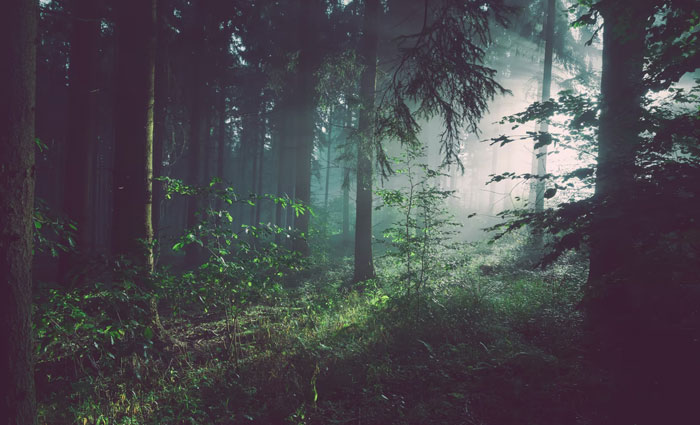 If you're wandering in the wilderness, wondering if the plants and water are safe to eat and drink, watch what the animals do. they will show you the safe plants and water.
spoiler: this is not true. many animals are evolved to consume things that are poisonous to us, or nutritionally valueless.
case in point: vultures
If you're wandering in the wilderness, wondering if the plants and water are safe to eat and drink, watch what the animals do. they will show you the safe plants and water.
spoiler: this is not true. many animals are evolved to consume things that are poisonous to us, or nutritionally valueless.
case in point: vultures
10 upvotes for correct use of wonder/wander. I've seen so many posts and comments lately that confuse these 2 words.
and then and than. I have a friend who always gets it wrong. I told him to use the opposite of what he thinks it is. It worked!
Load More Replies...Boil your water. Even if you're not even sure it will help. Do it anyway.
They have one stomach divided into four chambers. As ruminants they ferment, with specialized gut microbes their feed first, then regurgitate and chew it before it gets mixed with stomach acid.
Load More Replies...Still the best way in a worst case scenario. But then you should also take some precautions. Rub it on your skin and wait 4-6 hours, then rub on the inside of the mouth and wait. If no reactions, take the tiniest nibbe and swallow, wait for 8-12 hours. If you still have no issues, you can try a little more and wait some more. As you can tell, this isn't you really can do once you actually are starving as it takes a couple of days to make sure it isn't directly poisionous. It can still have long term effects. So this advice is good if you are in a life or death survival situation.
Waiting at least 15 minutes after testing it on your skin then tasting it is a good look, too.
Load More Replies...*most* animals are evolved to eat things we don't/won't/can't. The phrase "died of intestinal blockage" comes to mind.
Black bears can typically eat the same things as us, but they also eat carrion. I can't think of another animal that would have a closer diet, so this is a very silly and dangerous generalization. Many do eat things we cannot.
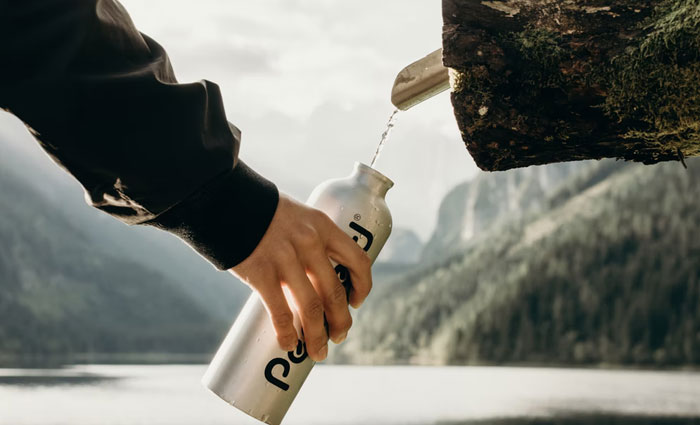 Rationing water is generally a terrible choice - drink what you have until it’s gone. Use that time with good hydration levels to take stock of your situation and make good choices.
Decision making and physical ability drop off very quickly when you are dehydrated. The first decisions you make after realizing you are in a survival situation are critical and pay long dividends.
Most survival situations are resolved within 72 hours and many hikers are found dead in the desert with full water bottles.
Rationing water is generally a terrible choice - drink what you have until it’s gone. Use that time with good hydration levels to take stock of your situation and make good choices.
Decision making and physical ability drop off very quickly when you are dehydrated. The first decisions you make after realizing you are in a survival situation are critical and pay long dividends.
Most survival situations are resolved within 72 hours and many hikers are found dead in the desert with full water bottles.
I mean, I wouldn't say drink it all right down straight away, but don't limit yourself to one sip a day or anything. Fact is, if you don't know what else to do when you are stranded somewhere, you're probably screwed!
The point is that you should drink normally while the water lasts.
Load More Replies...This varies by location. If you're in a desert? There's one rule. If you're in a temperate forest? There's another. The rule is: Ration your water according to your need, and then to your ability to get more. Rationing can mean "a sip every five minutes", for ptiy's sake!
The desert bit is true, not due to rationing, however. It is adviced that if you go to desert, you set your watch / mobile to beep every 2-3 minutes to remind you to take a drink. The problem is that in desert, human body does not sweat and dehydrates extremely quickly, so you can be dying of dehydration within 10 minutes without even noticing. Hence the alarm to remind you.
Addendum: You sweat, but your sweat evaporates so fast it's insane. I *hate* deserts. Really do.
Load More Replies...Most lost hikers are also found shockingly close to a road, trail or place of safety. Be familiar with where you are going, at the very least take a whistle, SOL emergency blanket snd a flashlight with you these will increase your odds of being found and less likely to die of exposure
When asked what are the three key survival skills to survive in the wilderness by yourself, Nester started off with “an attitude.” He explained: “Assuming you haven’t suffered a grievous wound or injury and need immediate attention, mindset is key and I always stress the critical concept of PMA... Positive Mental Attitude, which has gotten many survivors throughout the world out of grueling situations, despite them not having any training or gear.”
 In Australia at least, you do not need to identify or try to catch the snake that bit you. The antivenin is universal.
In Australia at least, you do not need to identify or try to catch the snake that bit you. The antivenin is universal.
Other tips: *Lay still and focus on staying calm *call emergency services *put a compression bandage all the way down and up the limb (not just at one point along the limb) *don't let anyone take the bandage off to have a look at the state of the wound, the compression bandage must be taken of over the space of an hour (if u take it off quickly the venom will rush into the bloodstream fast) * wear proper boots when camping/hiking
Not so tight it cuts off the blood supply. Aim is to restrict blood flow - the body can handle small amounts of poison at a time. Keep the bandage on - the hospital can identify the snake from the excess venom left on the skin and now absorbed by the bandage. Keep calm and inactive, slow the blood flow to a minimum.
Load More Replies...Worked in a hospital. So many rednecks would show up trying to sling around the snake that bit so and so. This tended to be stressful for everybody in the waiting room. Sadly alot of the deadly snakes were just hognoses or even king snakes that couldn't/wouldn't be the maker of the bite in question
And do not stop, even in the US, to take a picture of the friggin' snake. ERs will know which snakes there are in the area that are venomous. We have a guide with pictures we can show people. And all we have are eastern rattlers and coppers. (Everything else just needs antibiotics and a sedative, is the basics.)
Snake story, ages ago when my middle child was a baby, she loved crawling on the grass in the yard. I had no issue with it UNTIL we found a rather plump snake slither from the wood pile out back. Neighbors gathered, found it and unfortunately had to do away with the future pair of shoes. Now idk anything about snakes so I do some research. couldn't ID it, so I called ENCON (US Environmental agency) I apparently asked a question that they had never encountered before, I asked how can you tell if the snake you just killed was a female and was it pregnant. Not knowing the spawning facts of Timber Rattlesnake , Copperhead or Eastern Massasauga Rattlesnake (the big 3 venomous). I was wondering should I expect a bunch of these lil slimers to emerge sometime in the summer. The poor guy was silent for like a whole minute. Finally stated he had NO IDEA since he had never been asked that question! End result it was collected by ENCON and I discovered it was just a plump male.
Load More Replies...And you won't have to worry about venom from pythons. And the chances that a snake or anything biting is very low, except mosquitoes. You have provoke a snake to really get bitten, they usually just slither away if you come across one.
A lot of snakebites are dry anyway - more to get you to move away.
Load More Replies...Also if you run around trying to catch or kill it, the venom (spreads) works faster.
I know a rigger in WA, he was off in the ass end of nowhere, I assume Central/Northern Oz, somehow they pissed off a brown snake and had to hide in the cab of the rig while this snake attacked the tyres on the rig for 30 minutes. He said it was insane to watch, this snake was absolutely furious and trying to take chunks out of the tyres. So yeah, that's me running the hell from any snakes next time I visit.
Best to snap a photo if possible, I can tell you straight out that NOBODY in the hospital wants you bringing in a snake, not dead, not alive. Ask it to say cheese and get going
And don't stick around to get the pic. If you have to look for it? Don't. Just snap where you were bit. Habitat is a big clue for some things. (Some.)
Load More Replies...That's actually really good to know. In the US, I always heard you DO need to ID. And I figure I'd just die.
You used to in Australia too, if I remember correctly, but now they only use one type of antivenom regardless.
Load More Replies...Identification of the offending snake will aid in the choice of the appropriate antivenom and alert clinicians to particular features characteristic of envenomation by that type of snake. Identification of snakes by the general public or by hospital staff is frequently unreliable. Sometimes, the snake is not seen, or is only glimpsed in retreat. In these cases, a snakebite venom detection kit may be used. CSL Snake Venom Detection Kit including contents and packaging. Australia is the only country in the world that has snake venom detection kits.They consist of a rapid two step enzyme immunoassay in which wells are coated with antibodies to the various snake venoms. A swab from the bite site, blood, or urine helps to select the type of snake antivenom which ma
I hadn't heard of that, but it makes sense, as many times the bites are dry and there has often been a shortage of antivenom so you want to make sure you are only using it when needed.
Load More Replies... 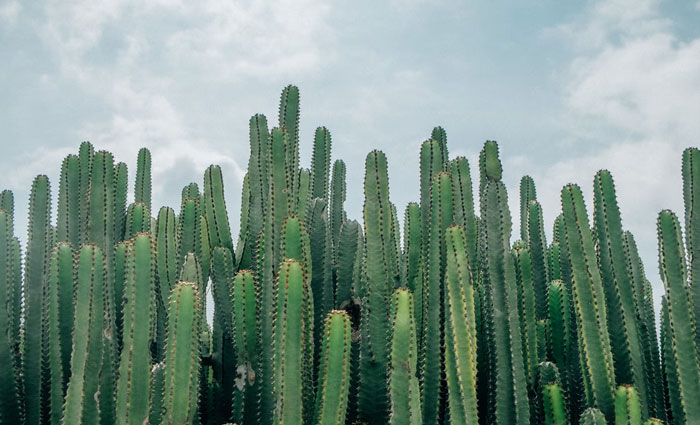 Don’t drink water from cactus, it’s not potable and likely to trigger vomiting/diarrhea and you will get more dehydrated.
Don’t drink water from cactus, it’s not potable and likely to trigger vomiting/diarrhea and you will get more dehydrated.
Depends a bit on the kind of cactus. There are some that can be used, but if you don't know exactly what kind of cactus you are dealing with, the effect is most likely that you will vomit and loose more liquids. So even if the above statement is partly false, it is good advice.
I learned to never ingest the cactus juice unless I'm with someoen who is a survival expert, in which case, I'm probably not going to need cactus juice. B/c it can depend on how close to rainy season it is, etc., too, apparently.
Load More Replies...Quick tip: You can slice up the cactus meat, put it in a cloth, wring it out, and at least soothe skin with cactus juice.
Learn which cactus are edible. Opuntias being one of the most well known, the leaves (pads) fruit and flowers are edible
I don't know why you were downvoted you're not wrong coconut milk can have a laxative effect...the meat/fruit part is high in electrolytes
Load More Replies...If you have the materials, dig a pit, put a container in the middle, place a piece of plastic or water proof fabric over the entire pit with a point in the fabric over the container, make certain that the edges are sealed up with rocks, dirt, whatever, chop up cactus into small bits and place it inside the pit around the container. The heat of the sun will draw the moisture out of the cactus and it will collect on the fabric/plastic dripping into the container. It won't taste good but it's safe to drink.
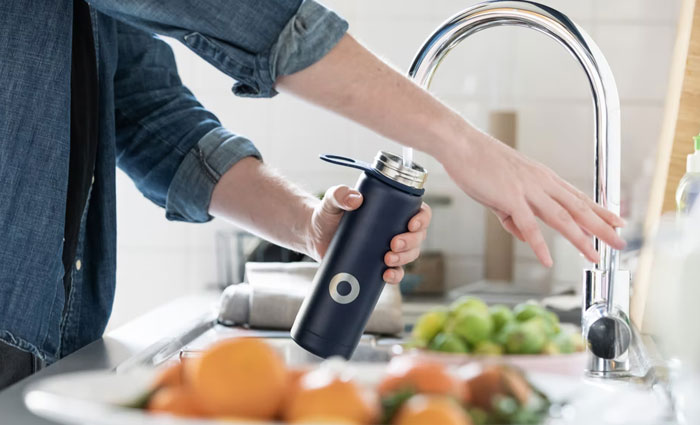 Most people probably are aware of this, but if you're legit suffering from diarrhea, you need to be doing more than just drinking water because you're also losing a lot of salts/electrolytes and not replenishing those can really f*ck you up.
You can make a pretty basic Pedialyte/Gatorade at home from adding 6 teaspoons of sugar and a half teaspoon of salt per liter of water. It won't taste super great, but you can throw in other flavorings to mask it like lemon juice or similar.
I did peace corps in a tropical region and most of the volunteers came to dread the inevitable parasite/gi infection episodes not just because of being incredibly sick but also because of having to drink liters and liters of ORS, which is peace corps' preferred pedialyte knock off haha.
Most people probably are aware of this, but if you're legit suffering from diarrhea, you need to be doing more than just drinking water because you're also losing a lot of salts/electrolytes and not replenishing those can really f*ck you up.
You can make a pretty basic Pedialyte/Gatorade at home from adding 6 teaspoons of sugar and a half teaspoon of salt per liter of water. It won't taste super great, but you can throw in other flavorings to mask it like lemon juice or similar.
I did peace corps in a tropical region and most of the volunteers came to dread the inevitable parasite/gi infection episodes not just because of being incredibly sick but also because of having to drink liters and liters of ORS, which is peace corps' preferred pedialyte knock off haha.
YAY! THIS! Finally! Leanred this as a kid from my mom (a nurse). Still use it. FYI, add a touch of baking soda (bicarbonate), and the citrus juice can add potassium. :-)
If you eat a few guavas the diarrhea will go away naturally in a few hours. This fruit has astringent, antidiarrheal and antispasmodic properties that help regulate the bowels and fight diarrhea.
Unless you start throw up from the smell which will make things worse! God I can't stand the smell of guava
Load More Replies...Back in the 1980's, in Brazil, that was a common problem in some of the poorest parts of the country. The largest Brazilian tv network organized an anual event to spread information on health and safety measures for those who lacked formal education, and as part of that, they distritbuted measuring spoons and made a LOT of videos about what this post is saying. We call that water+salt+sugar drink "homemade serum" and everyone used to have that measuring spoon at home. Nowadays that info is widely known in Brazil, thankfully.
It's Coke and salty pretzel sticks in Germany to get sugar and salt back in. I know it's not optimal so. >.
Bloodorange soda and tuc cracers was what we got as kids in Finland.
Load More Replies...If available, lemon is a great source of electrolytes. Also coconut water. Table salt does provide sodium and is better than nothing, but unfortunately lacks potassium, calcium, magnesium, phosphorus and other trace elements which your body needs to really effectively hydrate.
Once recovery starts - first thing to east is dry bread or toast for a while.
Cue to my mum bringing me endless vegemite toast :)
Load More Replies...This also applies to heat exhaustion. Plenty of water alone doesn't heed off heat exhaustion. Gatorade is important for electrolytes. Source: me. Took a year for me to recover.
I had a friend who got heatstroke at the Australian Open a few years back and she had to get Gatorade on the way home.
Load More Replies...Yup happened to me, it messed up my whole academic year. I had a terrible case the night before my master's started and I still went and j was off for weeks. I finally went to q doctor Bur by then too much time had passed to see the original symptoms. They thought jt was a virus and I felt "off" and struggled with everything for almost a year. Wish I had known this then.
“Simply put, this is the will and desire to endure a brutal night in the wilds. There’s nothing fun or romantic about being lost or surviving by yourself and it all boils down to having a reason beyond yourself to live. In interviews I’ve done with real-world survivors over the years and reflecting back on my own close calls, it’s become apparent that having One Thing to live for is key... your kids, spouse, dog, parents, or your faith is what will galvanize your willpower and help you deal with that fractured ankle while the cold rain is coming down and the night is upon you!”
And with mindset comes the need to plan and prepare before your hike, Nester said. He suggested telling someone exactly where you are going and when you will return, checking out the weather forecast, and carrying a quality survival kit to handle those Big 5 priorities.
 If you get caught in a forest fire, that you can survive by finding a big depression, or cave and waiting for the flame front to pass. You'll die from suffocating as the fire consumes all the oxygen. You have a much better chance of running through the flame front. Protect your eyes, face, and especially your airways, cover as much of your skin as possible. The main things are to protect your eyes, mouth and nose. Pick a line with the least obstructions, and where the fire will burn less intense. Close your eyes, take a deep breath and run, you'll know once you've made it through. Most people will gasp or try to breath in once they hit the flamefront, that's why you gotta protect it, otherwise you'll take in a breath of super heated air, instantly blister your lungs and drown in your own bodily fluids.
If you get caught in a forest fire, that you can survive by finding a big depression, or cave and waiting for the flame front to pass. You'll die from suffocating as the fire consumes all the oxygen. You have a much better chance of running through the flame front. Protect your eyes, face, and especially your airways, cover as much of your skin as possible. The main things are to protect your eyes, mouth and nose. Pick a line with the least obstructions, and where the fire will burn less intense. Close your eyes, take a deep breath and run, you'll know once you've made it through. Most people will gasp or try to breath in once they hit the flamefront, that's why you gotta protect it, otherwise you'll take in a breath of super heated air, instantly blister your lungs and drown in your own bodily fluids.
I love how there's this assumption I have fireproof blankets and such to just keep me from dying of the burns anyway. Best way to not get caught? *Be aware*. And move immediately. The assumption you're okay if you can't smell smoke or see flames is the real killer, IMO.
Says nothing about fireproof, just cover yourself with any fabric to protect your air passages - pull your shirt up over your head if need be. Fire moves fast. A whole town in California went up so fast many couldn't make it out, 86 people died. You can run through a fire line if you cover your face and run. You look for the thinnest place.
Load More Replies...We had some people during huge California wildfires think they would be safe in their pool. Forgetting that the fire consumes all the oxygen around it. Get out ASAP, stay out until authorities give the all clear. I have been evacuated twice because of fires, even evacuating can be a death trap, fires can and have overtaken cars in traffic in an evacuation.
Also, don't climb a tree assuming that you''ll be safe from fire if you are up. Actually, you'll die suffocated by the thick smoke. I've seen such a case a few years ago, when giant bush-fires ravaged southern Europe.
Really people do that? I thought is common knowledge that you crawl down because the smoke goes up?
Load More Replies...If driving. pick an open spot with minimal or no fuel (e.g. truck turning area). Park your vehicle in the middle and get underneath. There's basically four ways you can die in a forest fire: 1. burned by the flames - running through them may work in a low grass fire - little depth or height, but anything else is lethal. 2. killed by breathing super-heated air - there is usually cooler air right down at ground level. 3. killed by the heat radiation coming from all directions - in a fire do not run around in shorts and singlet. 4. falling trees pushed over by the very strong winds produced in a fire. A vehicle above you will protect you from the worst of all four effects. Hopefully, by the time the vehicle is burning the worst of the fire front will have passed.
would not take this advice it assumes you know where the flame front in you could just as well run deeper into the fire .
"you'll take in a breath of super heated air, instantly blister your lungs and drown in your own bodily fluids." Ugh, what a horrible way to die.
This is a really scary scenario. I don't know what I would do. Hopefully i would be able to escape before it is too late.
Try to cover yourself in a wet blanket, because if youre blocked off by a wall of flame, your only choice sometimes is to go through, so the blanket will probably protect you for a few seconds at most.
Wait until you hear the freight train sound to go to the tornado shelter. I was always told as a kid, if you can't hear it you're alright. At 20 years old I was caught out in the woods with a few friends thinking we had 10-15 minutes to get back to the truck after the tornado warning went out. 3 minutes after the warning we heard what sounded like a freight train and this loud hissing sound. Like a thousand rattlesnakes. Within 30 seconds we were watching trees get plucked up into the air. We all made it out alright. Luckily there was a large ravine that was dry that time of year and we scrambled into it and flattened out gripping to each other and rocks for dear life. It took 30 seconds from the time we realized it was in front of us till it was ontop of us. Later in life I watched a F3 touch down. Because how tornados spin and the earth spins, and I was traveling at 75mph down a highway. I thought I was running along side it. About 1 mile from it. I couldn't hear it, I could see trees and barns going up into the air with it. I never realized it was coming towards me at about 30mph. By the time I heard it and felt a pressure change inside the cab of my truck I had no choice but to bail out and run into a culvert along side the interstate. This all happened within 60 seconds. If you've already heard the tornado. You need to be in your shelter. Not heading towards it. A tornado watch is an advisory to be watching for tornados. It means it is highly plausible for a tornado to form and touch down. A warning means a radar indicated tornado has touched down and possibly even been spotted by human eye. If you cannot get in doors, get as low as you can. I have made a habit, as soon as a tornado watch is released in my county, my go bag, the diaper bag, the kids stuff they WILL need all goes in a large duffel in the storm room. I'll watch velocity radar like a hawk until the watch is cleared. If it is elevated to a warning we all pile in. Tornados can drop out of the sky right on top of you in under a minute, leaving you with little to no reaction time.
Wow , scary stuff. I’d still like to see one in real time though . I’m British 😆
No. Trust me. You wouldn't. Same as you really don't want to survive a building fire or an earthquake. I grew up in tornado alley. On my brother's ninth bithday (so in the 70s), I was taking a shower, when my father (DAAAAAAD!!!) rushed in, yanked me out, threw a towel around me and dragged me across the yard to the shelter. I saw that monster coming for us. I'm shaking as I type this and its been decades. I truly thought I was going to die. My mom was so cute. She'd grabbed my brothers and headed to the shelter WITH my brother's birthday cake. So she kept all the kids calm, letting us gorge on cake and Pepsi. Luckily (for us, not others), as tornados do, it touched down about a mile from us, skipped our neighborhood and crushed the one next to us. It was the loudest thing ever. And the air pressure was insane. I will never forget it. I've been through others, but that one was a doozie. Just use your imagination. Stay safe! :)
Load More Replies...Get ready with your go-bag for a shelter when the watch is issued. Do not wait to hear it. the second you hear the warning, *shelter immediately*. I survived a major tornado outbreak, and two other tornadoes. Do *not* screw around. Please. Shelter in a ditch, but it's safer than being impaled by a flying piece of house.
My son does not heed. He was on the 2nd floor of our house and woke up to crazy wind and he thought to himself, "Either a tornado is here or it's coming soon." And he promptly laid back down and went to sleep. The tornado touched down 2 blocks from our house. (North Minneapolis tornado 2011: https://www.youtube.com/watch?v=Q0rF_kc6t9c) I'm still mad at him!
I can imagine! It sounds like something my sister would do, even though she is a scout. I suspect in her case it would be Be Prepared- to die.
Load More Replies...And if it looks like they're not moving they're coming right for you
Bike helmets are a good idea too, especially for kids; I've heard of kids who's lives were saved bc they were close at hand when it was time to shelter. Of course don't go look for them tho if you're out of time!
In 2011, we had an F3 here in southern New England. It formed less than a kilometer from my house. Fortunately for me, it moved away from my house, but it did go through my dad's neighborhood. It ended up traveling 63km, killing 3 people and injuring 200 more. At its worse, it was nearly a kilometer in diameter. I've never been so scared. Tornados are extremely unusual here, in part because the valley in which I live is bordered by mountains on the west and north. These kinds of anomalous storms have become much more prevalent due to climate change.
I am always fascinated by the fact that people live in tornado zones. I would have ti find another okace to live. But I guess that's getting harder, hurricane, floods, artic chills, wildfires.
That's what I'm thinking! If you're able (in any/every way) to move somewhere where there isn't natural disasters, why wouldn't you?? I completely understand if you can't move because of financial issues, or you can't move states/countries because of how complicated it is/you're not allowed to for whatever reason. But if you can, why not do it? I couldn't care less if your only reason is that you like the area or your relatives live there too, you're endangering yourself and your family (if you have one) ??
Load More Replies...I do the same and so does my mom when we hear the tornado watch. When I was younger she would tell us kids to get a back pack of clothes, then food, water, etc. Now I just get my stuff for me and then stuff for my two dogs. Then we just head down to the basement and watch the weather.
 For the love of god do not eat everything raw.
If I see another episode of Bear Grylls eating a bat or bird as raw as sashimi, I think I'll go crazy.
You should absolutely try your best to cook the food you've nabbed. Even if it's through an open fire for a few minutes. Eating, say, a dead bird that may or may not have bird flu is a hell of a lot worse than creating a fire to cook it over. Congrats for completely screwing yourself by eating raw wild meat!
For the love of god do not eat everything raw.
If I see another episode of Bear Grylls eating a bat or bird as raw as sashimi, I think I'll go crazy.
You should absolutely try your best to cook the food you've nabbed. Even if it's through an open fire for a few minutes. Eating, say, a dead bird that may or may not have bird flu is a hell of a lot worse than creating a fire to cook it over. Congrats for completely screwing yourself by eating raw wild meat!
I think Bear does for affect, more then anything else.. Could never understand why he goes to all the effort of building a fire, but eats fish and small mammals raw?
Never do anything that guy does. Everything he does is wrong.
Load More Replies...Wow. I was sad to see all the comments trashing Bear Grylls. I thought "oh, no - another seemingly decent celebrity turning out to awful." But I gotta say, from googling him he still seems like a pretty good person and definitely has some bona fides. Maybe he's too sensationalistic in the stuff he does on his show, and too aggressive according to the real life survival experts, but I was expecting a real POS after seeing the universality of dislike in the comments, and it doesn't seem like he deserves that at all.
I biology class in college we learned about parasites in wild animals. They are full of them and not just in their guts. In their muscles and everywhere. Not just one kind but tons of different ones ...including fish. Worms in their muscle meat. They don't have vaccines and they don't get antibiotics. Nasty as hell. Never ever eat it raw.
Bear Grylls is a fraud. In the first place, he's obviously not alone, and second, he's not in the wilderness. There's probably a KFC just over the hill.
Bear is a fraud, everyone knows it. Les Stroud's Survivorman series is legit. He understands we're not all parachuting in and then staying at a motel!
Oh yeah - he did a caving video in the Yorkshire dales in the UK and the entire caving community was furious at the insane reckless stuff he was doing. However, that said, I quite often play his videos to my pupils because you can pull out quite a lot of educational content from them. It's also great for inspiring city kids to want to go outdoors. He is a useful tool ;)
The second key thing to survival is sheltermaking. “Hypothermia is the number one killer of people in the outdoors the world over and most cases happen in 50 degree F weather. Carry an AMK Heatsheet, a 5x7 blue tarp and 25’ of rope (big-box hardware stores carry these), and wear layers, then learn how to rig up your tarp to keep you out of the elements. Practice tying the timber-hitch and the half-hitch as these are very simple to remember and great for lashing a shelter in place,” Nester said and reminded that “your first shelter is your clothing, so avoid 100% cotton and wear fleece, wool, or other garments that will keep insulating even when wet.”
Myth: When hiking in Grizzly country, a handgun is the best way to protect yourself from grizzlies. That's absolute bullsh*t. Bear spray is far more effective then any gun in a bear attack. Imagine a 600 pound bear charging you at 35 mph. How good of a shot do you think you'd have to be to stop that bear before it gets to you? And what if you don't kill it one shot? That bear now has adrenaline rushing through its body on top of its already insane strength. Bear spray, however, will stop that bear and cause it to run off. All of the studies show that bear spray is far more effective at stopping charging bears.
The skull of a bear is angled, a bullet has high chances to get deflected upwards.
It would take a truly massive handgun and a perfectly aimed shot to impress a Grizzly.
The early European explorers found this out. The native americans warned them not to, but the explorers decided they knew better and almost died before they shot it 12 times. Might I add that once you spray the bear spray, you're going to get some of the effects as well. Its like pepper spray times a hundred. You're not going to want to be there for very long, but you still must not run!
So who is being sprayed?? Me or the bear?? Do I wait for it to get upclose so I go hey there grizzly bear! spraying that s**t on it or what?? Am curious. There are no bears in Africa so ....
Always buy two, and practice using it before you need it. When a bear is charging you at 50 kph it travels 13-14 meters per second. That’s not near enough time to stop and figure out how to break the seal on the can. And it’s no good just spraying in the general direction of the bear. You have to let it get close enough that you can spray his face. Your best bet is to stay alert and get out of the area before the bear decides you’re a threat.
Load More Replies...Not a lot of handguns out there that will do anything except make the bear even more pissed off. If it's less than a .50 caliber don't even try it.
What if the bear has a gun? Should I pepper spray myself in the hope the bear will laugh and take pity at me?
Also more humane. If you're in bear territory, YOU are the invasive one, NOT them, so shooting them is beyond tragic
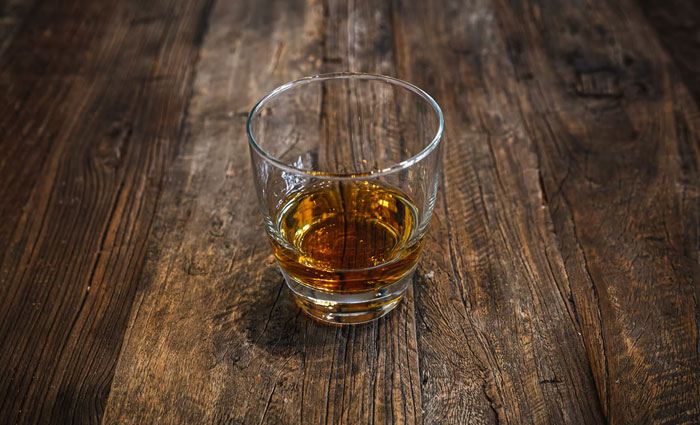 Alcohol does not warm you up. You feel warm since its dilating your blood vessels in your face and extremities but that causes you to lose more heat to the environment and therefore will make you die of hypothermia quicker if anything.
Alcohol does not warm you up. You feel warm since its dilating your blood vessels in your face and extremities but that causes you to lose more heat to the environment and therefore will make you die of hypothermia quicker if anything.
But this exact reason is why people with poor circulation and resulting foot problems do regularly drink alcohol. It helps keep their feet from getting worse and possibly needing to be amputated. But not to excess.
I was just thinking this. My feet don't get blood. Rhe turn really cold and deep blue. Read this about alcohol and thought .... 🤔
Load More Replies...Following a heart attack, my father's cardiologist recommended taking a measure or so of whisky each night as it helps thin the blood apparently.
Strange. My mother got meds and is absolutely forbidden to drink alcohol, as it could mess with the drugs
Load More Replies...Learned this the hard way. Some years ago we had massive anti-government street protests in January-February. The temperature would go down to minus 10 degrees Celsius or lower, and sometimes there was a bitter wind blowing. After the first couple of days we started sharing advice on social media groups ("how to resist in cold weather") and prepare accordingly.
Years ago some teen round my area got shitfaced on whiskey and passed out in the snow. Ended up in ICU.
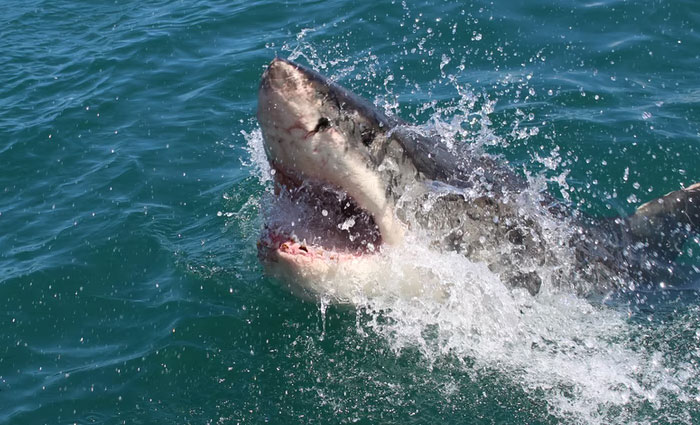 Punching a shark in the nose.
Have you seen a shark nose? Its slippery and angles down into three rows of teeth!
Go for the eyes if you need to but mostly avoid acting like a wounded seal! If you flail around like "ahh f**k its gonna eat me"
The shark will feel obliged to do so
"ahh f**k I guess I’ll eat you"
Punching a shark in the nose.
Have you seen a shark nose? Its slippery and angles down into three rows of teeth!
Go for the eyes if you need to but mostly avoid acting like a wounded seal! If you flail around like "ahh f**k its gonna eat me"
The shark will feel obliged to do so
"ahh f**k I guess I’ll eat you"
This may be good advise but I honestly cannot imagine staying calm and analysing survival techniques while in water with the great white. I would probably only want the shark to start eating me from the head 😉
Been there - just pound the sh*t out of it, anywhere. Panic sets in immediately, you can't think, so just hit away. It doesn't expect you to fight back and will back off.
Load More Replies...They have a lot of nerve endings in the nose, so you can hurt them that way. It's hard to punch in water, but scratching, grabbing, pinching is an option. The eyes yes, but they can close them. Sticking a limb in their lungs is also bothersome for them. Most of the time, they're not trying to eat you. Just seeing what you are with the only testers they have, teeth. Best wear colours and patterns that distinguish you from their prey.
Yeah, you are way more likely to die from blood loss because they bit you in passage once or twice just to find WHAT you were and then left you alone than by being actually chomped up or hunted like in the movies.
Load More Replies...This was back when I was about 20. My friends and I decided to go to Zuma Beach to boogie boarding. After most of the day only me and another buddy are out waiting on some waves to take in and call it a day, we are a good ways away from shore. My friend caught the next wave in and I waited for mine. All of a sudden the waves kinda stopped at my distance. I could here yelling from the shore. I look and it's the lifeguard yelling at me and pointing to my left. I turn and there is a fin sticking out the water about a hundred feet away from me. I was like nope and luckily a wave came and I did everything to get to shore. I made it and just collapsed on the same. Lifeguard comes up and tells me that there is rip tide and I need to move over. I look at him like he's crazy and blurted out, "f$#k rip tide, there's a shark out there. I sit up and me, the lifeguard, and everyone else at the beach, look at the water just as a dolphin swam by.
I think you have a better chance to survive a shark attack than a rip tide. That dolphin probably came to warn you.
Load More Replies...Most shark attacks like mountain lion attacks, you are not going to know they are coming, let alone be prepared. I live near a Great White breeding area just north of San Francisco Bay, most surfers have learned to read the waters and stay out when it feels “Shirley”. Fact is you are more likely to drown from a rip tide or rogue wave than shark attack
whatever you do stay calm(as much as you can) Tread water and don't make lots of movement. Also if the shark does bite it probaly won't like your blood(compared to fish)and only take one bite. SHARKS HAVE TASTE BUDS!!
The third crucial step to survival is the ability to signal, Nester told us. “You are a tiny speck on the landscape to searchers, so carry a 3”x5” glass signal mirror (and know how to use it... it takes mere minutes in your backyard), a whistle, flashlight in addition to using your cellphone’s strobe feature.”
For longer trips, Nester will carry an ACR Personal Location Beacon which is recognized by search-and-rescue units throughout the US and many parts of the world. “This device can send a signal to the nearest search unit in your region and pinpoint your location,” he said.
“Given that a lot of the Western US is a tinderbox for much of the year, I don’t recommend signal fires, so carry some of the above gear and you’ll be able to draw attention to you. If you break down by your vehicle, then use your headlights and horn and spread items out in a large circle around your car to make it obvious you are stranded.”
 If you get stabbed by something, DO NOT try to remove the object. You will make it worse and potentially bleed to death, depending on where you were stabbed, if you try and pull it out. Leave it be and get help.
If you get stabbed by something, DO NOT try to remove the object. You will make it worse and potentially bleed to death, depending on where you were stabbed, if you try and pull it out. Leave it be and get help.
I think this is the only realistic advice on this list, to consider. All the others are way out there and if you are actually in that situation, would probably die regardless. This one is good, as it can realistically happen and the first instinct is to remove it. Never do it. That's what surgeons are for, don't put them out of work. ☺
It really depends on where you live, what you do, and how isolated you are. Questions of hypothermia, heat exhaustion, and dehydration are important for everyone to know, I think, especially since climate change has made weather so unpredictable for ALL of us.
Load More Replies...So many TV shows are really ridiculous about removing bullets. A character gets shot and everyone is obsessed about getting the bullet out. The bullet is always plinked into a metal can or ashtray and everyone breathes a sigh of relief...lol just leave the bullet in there instead of making the bleeding worse or sticking anything into the wound that will cause a deadly infection.
Exactly. Sometimes surgeons even leave them in because it can be a bigger risk to remove them.
Load More Replies...If it is resting on or knicking an artery, it's most likely what is keeping you from bleeding out.
Same with bullet wounds - doctors don’t go fishing around for the bullet - they’ll only remove it if it appears while sorting out the wound.
This! It acts like a plug and stops the bleeding! Pulling it out will only release the blood and you can possibly bleed out.
This is common survival knowledge and is correct This list is correcting wrong survival advice so this post doesn't belong.
Personally, I think I’d rather have advice from someone who’s a survival instructor and multiple-book author who has been teaching wilderness survival and bushcraft courses for the past 30 years, than from someone whose credentials are unavailable.
Load More Replies... 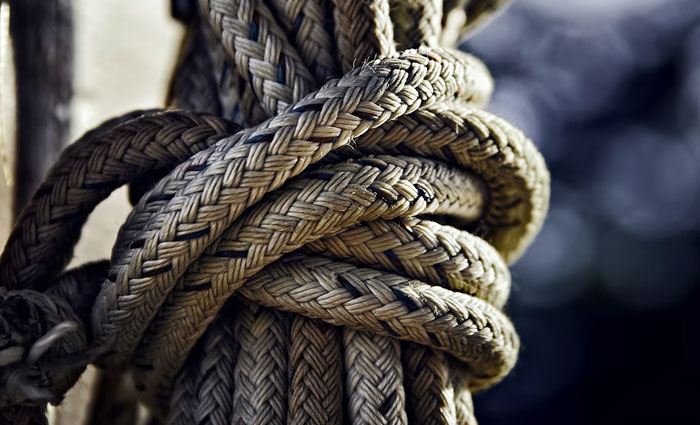 Don't tie a rope around your waist and expect it to save you from a fall. Sure, it might prevent you from hitting the ground, but you can still damage your internal organs and break your back doing this. Safety harnesses go around your hips and legs, not your waist.
Don't tie a rope around your waist and expect it to save you from a fall. Sure, it might prevent you from hitting the ground, but you can still damage your internal organs and break your back doing this. Safety harnesses go around your hips and legs, not your waist.
remember seing the music video clip crying when alicia silverstone jump from the bridge WITH A ROPE. that must hurt like hell
If you're tying a rope around yourself, please do not run it between your legs. Crushed pelvis. Nasty stuff. Be aware that all instructional videos include climbing gear like carabiners, so I've no idea what us non-climbers do. Anyone? All I know is, the more strands of rope, the better, which isn't terribly useful.
For most things there are better knots than a bowline, but if you need to tie a rope around you to fall or hang from a bowline on a coil useful: https://www.youtube.com/watch?v=kdltgDOnMhY
Load More Replies...Er, depends on the safety harness. Many people wear them much too low down at, for example, indoor climbing centres. Many harnesses SHOULD be around the waist, not the hips, so that if you are inverted you don't fall out. Caving harnesses are hips and legs. Source:was responsible for kit checks at an outdoor centre and spent a painful amount of time reading manufacturer guidelines.
Safety harness definitely should go around your waist because there is a chance you'll fall out if flipped head down and the harness is around yor hips.
I destroyed my leg in a 10’ fall. Fortunately I had all the emergency gear I needed in a small pack I always carry, but the most damage was done later at the hands of a couple of very arrogant orthopedic surgeons. Check those online reviews and find a second opinion if available. In my situation, I had no choice.
Kyle Hill covered this humorously (and with science/math) on Nerdist: https://nerdist.com/watch/video/superheroes-are-saving-us-wrong/
Your rope needs to be dynamic (meaning it will stretch, like climbing ropes) also, or fall can break your back, or more. Action movies are fiction; research before new sports or risks!
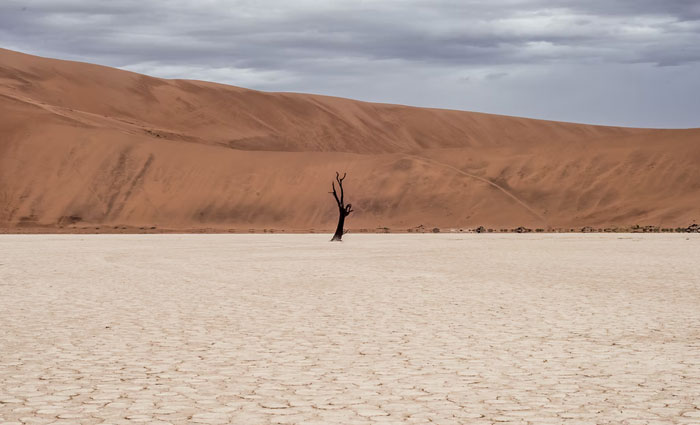 Do not try to leave a deserted island if you are stuck, you will almost certainly die before someone spots you.
Do not try to leave a deserted island if you are stuck, you will almost certainly die before someone spots you.
How TF does one, being lost, leave an island (!) which is deserted......
Rope some sea turtles. With hair, from your back.
Load More Replies...Sounds like Wilson has been giving survival advice. To be fair, he left the island after 5 years, so presumably by then, most people would have given up hope of anyone finding them.
Load More Replies...Deserted Island is not same as the desert. Is poster doing a pun with this picture?
We also wanted to find out what are the most common survival myths that are actually wrong, and the survival instructor shared a couple of them. “I get asked this all the time: ‘can you really cut open a cactus and get fresh water?’ No, all cacti are high in alkaloids, which will make you extremely nauseous and cause you to vomit, thus further dehydrating you in a desert environment. And out of the five barrel cactus in the desert, there is only one that is non-toxic... the fishhook barrel.”
Turns out, Nester has tried using the latter in the past under non-survival conditions after obtaining cactus that have been blasted over cliffs after flash floods. He recounted that the soupy substance inside is akin to a watery Elmer’s Glue. “Not only did I have to meditate like a monk to keep it down but, by adding a noxious substance to my body, I was pretty nauseous the rest of the afternoon which greatly affected my ability to hike even short distances.”
1. You need to be quiet. 2. You can draw a can of bearspray faster than... So. MANY. Post about "Mountain DJs", reality is, if you hike alone in Bear or Mountain Lion Country you absolutely should be noisy. Carry a noise device and be loud. If a speaker, for sure, mute it around others. But something. Whistle. Air Horn.. Speaker. Don't matter. Need to be noisy when alone at regular intervals.
This. Times five hundred. I was taught to sing. Make a nosie that is distinctly not prey-like.
Oh my singing is definitely not prey like! It will scare any predators for sure
Load More Replies...Prey is quiet. Prey tries not to be found. Prey runs and hides. Human is not quiet. Humans has noisy guns. Humans has ouchie face spray. Humans dont run. Which do you want to be?
This is way too exciting for me. I live in Britain and the only thing out for my guts is the government . If I sing will it deter them ?
Try luring the government to a secret party during lockdown. And then expose them as the hypocrites that they are.
Load More Replies...Whenever I hike in bear country, I always say loudly, "Excuse me bears, coming through bears" . Especially around blind corners
We go: Hey bear! Heeeeyyyy BEARRRRR! every couple of minutes. It's become a fun game.
Load More Replies...I have little copper bells hanging from my hiking stick. They make just enough noise to give warning of my approach, and sound pretty nice. No charge or batteries required. Works in all weather. I have usually had a big bandog with me, sometimes the pair, and that kept me from feeling like I needed to bring a gun along. They make short work of running off bear and mountain lion.
Grrrrrrrr, hand over the picnic basket and no harm will come to you.
Load More Replies...The sound should be 'un-natural' or unfamiliar to wildlife. Hiking through Glacier Natl. park...sounded like Christmas. Walked INCHES between black bear and cubs. They're so familiar with human noise and scents. Consider a bike bell or horn if you'll be in the backcountry, and especially when you're downwind. If they can hear or smell you, they will almost always move/stay away.
Going to pick blueberries, I said to my kids, "Be quiet. We might see an animal." My cousin, who was local to the area said, "Don't be quiet, be noisy. We don't want to see bears." Or at least, we want them to hear us before we surprise them.
See Missing 411, berry pickers. Be careful out there!
Load More Replies... 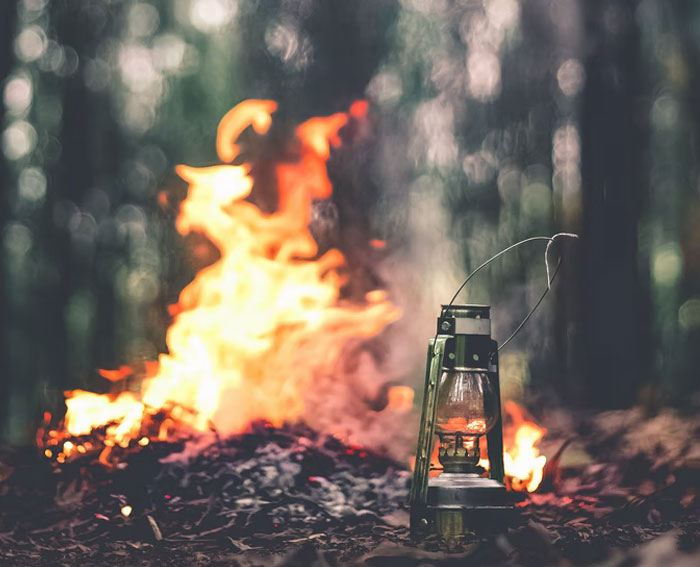 Everyone focuses on food and water but completely underestimates how quickly exposure will kill you dead. In some cases, you wont last 24 hours.
Bonus addition to this: every guide i have ever read says to make fire first. Making fire is f*cking hard sometimes. There are many environments where you flat cannot guarantee a good fire (deserts, because of lack of fuel and anything especially wet).
If you get halfway through the night and realize you cant make fire, you are going to have problems.
So make shelter. You can ALWAYS guarantee a shelter and insulated sleeping spot. Make sure your bedding is at least 4 inches thick when you lay on it. I guarantee youll underestimate just how bad the ground sucks the heat out of you.
Make your shelter as small, thick and weatherproof as possible.
Everyone focuses on food and water but completely underestimates how quickly exposure will kill you dead. In some cases, you wont last 24 hours.
Bonus addition to this: every guide i have ever read says to make fire first. Making fire is f*cking hard sometimes. There are many environments where you flat cannot guarantee a good fire (deserts, because of lack of fuel and anything especially wet).
If you get halfway through the night and realize you cant make fire, you are going to have problems.
So make shelter. You can ALWAYS guarantee a shelter and insulated sleeping spot. Make sure your bedding is at least 4 inches thick when you lay on it. I guarantee youll underestimate just how bad the ground sucks the heat out of you.
Make your shelter as small, thick and weatherproof as possible.
If you ever go into the wilderness, make sure you have a flint tool, a good knife, a large piece of plastic to act as cover, tent, water catcher, etc. and a bottle for water. Preferably also one of those little sticks you can put in the bottle that disinfects water. A couple of energy bars wouldn't go amiss either. In other words, be prepared.
First survival thing to do( at least on land): Stand up. Take a really really big deep breath....the let out the biggest FUUUUUUUUUUUUUUUUUCCCCKKKK!!! you can..realise its stupid and go back to the drawing board. Problem is: if you here the echo and you're hallucinating. At that point you're f****d. Like really f****d. So scale down the shrooms and hope for the best.. Welcome to my survival 101 Ted Rant
So what about that dessert where there isn't any wood to make a fire? What do you make the shelter out of and insulated sleeping spot?
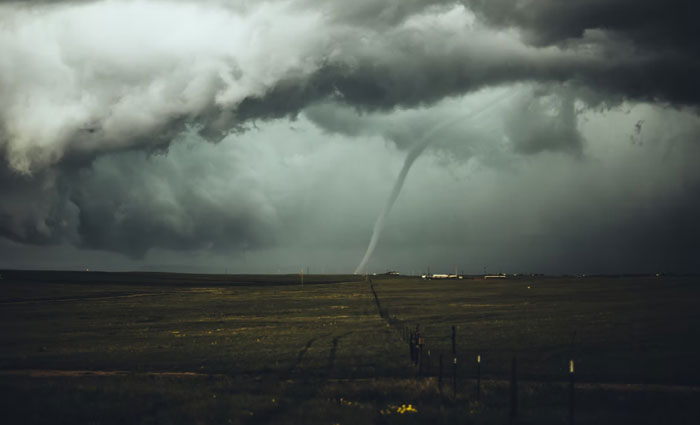 If you’re driving during a tornado warning, don’t get out of your car and climb up the side of an overpass to hide under a bridge. This myth became famous after amateur video of a man and his daughter hiding under an overpass, but the one they chose had some unusual construction that offered them protection in a way most don’t. Wind speed increases the higher you get from the ground, and the narrow passages can create a wind tunnel effect, taking the flying debris picked up by the tornado and sending it straight through you at 200 mph or more.
If you’re driving during a tornado warning, don’t get out of your car and climb up the side of an overpass to hide under a bridge. This myth became famous after amateur video of a man and his daughter hiding under an overpass, but the one they chose had some unusual construction that offered them protection in a way most don’t. Wind speed increases the higher you get from the ground, and the narrow passages can create a wind tunnel effect, taking the flying debris picked up by the tornado and sending it straight through you at 200 mph or more.
also if it looks like the tornado is sitting still, its coming towards you. run.
im curious, why would it look like its still, when its actually moving?
Load More Replies...And don't assume you're safe. A famed tornado researcher was in his chase vehicle observing a tornado and got caught in the car. RIP.
3 storm chasers died in one storm. A TV weather van was picked up, flipped and rolled. The cameraman, driver, and reporter were pretty banged up, but survived.
Load More Replies...I grew up in Tornado Alley. We were always told to get out of the car (deathtrap) and go down into the nearest ditch, cover our heads, and kiss our a$$es goodbye. But never to go up into the overpass for sure!
I notice it did not say what you should do. I would try to figure out which way its going and drive in another direction to find appropriate shelter. Any confirms/denys on this plan?
Only try to drive away if the tornado isn't close to you. If it's closer than a half mile or so, you're better off in the ditch on the side of the road
Load More Replies...And the thing some people throw around about opening your house windows before the tornado hits. As many people in Tornado Alley will assure you, the tornado will open those windows for you anyway.
Also, run perpendicular (sideways) to the direction the tornado is moving
“The other misconception comes with living off the land. Many of my students assume that it’s similar to pushing a cart through the produce aisle but it takes a considerable knowledge of edible plants (and those poisonous lookalikes), fishing skills and tackle, an understanding of wild game and their tracks, hunting know-how and a lot of time out on the land applying your skills,” Nester explained.
“So, if you are ever lost, stay put and await rescue rather than burning up precious calories searching for wild berries or that elusive trout, and remember that survivors have gone 43+ days without food.”
 Here's a good one: If you're in an elevator in freefall, DO NOT JUMP. It won't make your landing easier, it'll probably paralyze or kill you. Lay yourself flat to try and distribute your weight (as well as the pressure of the crash) more evenly. You'll give yourself a better chance at survival this way.
I mean, it's an elevator, so no guarantee you'll survive, but still small chance is better than none!
Here's a good one: If you're in an elevator in freefall, DO NOT JUMP. It won't make your landing easier, it'll probably paralyze or kill you. Lay yourself flat to try and distribute your weight (as well as the pressure of the crash) more evenly. You'll give yourself a better chance at survival this way.
I mean, it's an elevator, so no guarantee you'll survive, but still small chance is better than none!
Luckily modern elevators should not crash to the bottom even when freefalling, they will stop quickly but the G-forces should be low enough to not permanently damage you (cant remember how many Gs was acceptable)
Not so. https://www.google.com/amp/s/www.11alive.com/amp/article/news/local/elevator-accident-jaumarcus-killed-state-report-elevator-owner-fined/85-b4819462-d3ce-43a0-a8e5-c3d5423b068a
Load More Replies...I think free-falling elevators are about as common a danger in real life as quicksand
As a kid I was always sure quicksand was an acute danger! 🤣
Load More Replies...To survive this with jumping it would require you to jump at the exact moment the elevator hits the bottom, with the same speed the elevator reached at impact
If you're in a lift that's falling you won't be able to do anything at all. You will, relatively, be weightless just like astronauts in space and have no purchase to 'lie flat'. Apart from which, unless you're in a very tall building you won't have time to rea....
A few years back, in Brazil, an entire building freaking collapsed, and the only survivor was a man who was inside the elevator at the time. He talked about feeling the elevator shake, then stop, the doors opened and, suddenly, the whole building vanishing in a blur in front of him, while the elevator stood there an instant, before the back side of the building collapsed too, taking the elavator backwards. That was the last thing he remembered before he hit his head and passed out.
Lay down as flat as possible on a thick person. This should cushion the stop. (QI advice). It's not the free fall that kills you. It is when it stops...
To directly quote What If, "It's not the fall that kills you, it's the sudden stop at the end."
Load More Replies...Yeah, I never got the jumping thing. Even if it did work how would you know when to jump? And you would have to time it perfectly.
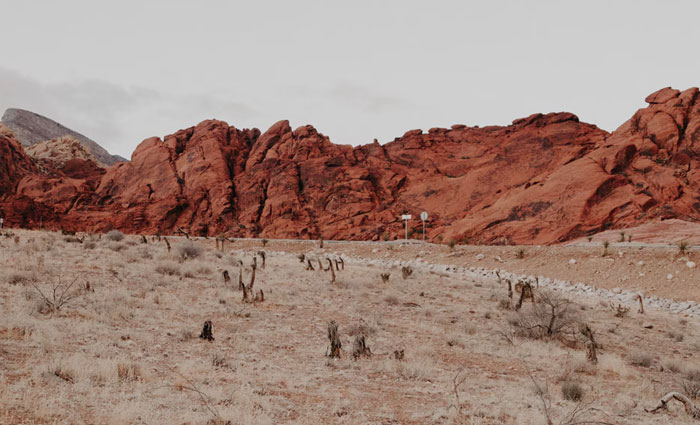 Building a raft to sail to civilization if you ever find yourself marooned on a deserted island. Stay on the island and be found alive vs never found or found dehydrated and dead of exposure.
Also walking to safety if you get lost and your car breaks down. Stay with the vehicle. They always find the vehicle. It’s inhabitants… not so much.
Building a raft to sail to civilization if you ever find yourself marooned on a deserted island. Stay on the island and be found alive vs never found or found dehydrated and dead of exposure.
Also walking to safety if you get lost and your car breaks down. Stay with the vehicle. They always find the vehicle. It’s inhabitants… not so much.
Eventually. They find the car eventually. FYI, if you're in a desert, great advice. If you're in forest, nobody can see your car. Also, islands often don't have potable water, so you can die if you stay put. This isn't all-or-nothing stuff. Survival varies according to situation, climate, etc.
Of course it depends on situation and climate. Leaving an island isn't a great way to find water, you will not find more out in the ocean, and an island is much easier to find than a raft in the ocean. The point is that if you have no idea how to get out of your situation, your best bet is to stay put. I would amend that to say that if you do leave, mark out the direction you went. But just like the "dont drink cactus" image earlier, I pointed out that if you do know and happen to be around the correct type of cactus, you can. But I still agreed with the statement, drinking cactus water will most likely make you vomit and make the situation worse.
Load More Replies...If you are stranded somewhere and you cant get anywhere fast, yoi goal is no longer to find help, it is to be found. Live plants make lots of smoke, fyi. If you've got oil, you can pour it onto a body of water and light it on fire. That'll get attention. But i do agree with Leo domitrix, it will change per situation. Just focus on being found.
I have to ask, though... why is this the third post on being stranded on a desert island that uses a DESERT as illustration? I don't think that's what the "desert" part of "desert island" is supposed to mean.
Yeah. Look up the case of the Death Valley Germans. While the car wasn't found in time it was found--the bones only **long** later when a S&R guy figured out what they must have been thinking. We also had a recent case--their car was found in time for survival. They had hoofed it to the closest place they expected to find people--only a few miles. I don't think even a mountaineer could cross that terrain. One was still alive when they were found.
Load More Replies...If the Island has drinkable water then sure you have a better chance surviving on the island.
If Bear Grills does it, don’t do it. If Survivorman Les Stroud does it, consider doing it.
Les is much better. Bear is a joke at best, a fraud, a POS. Granted, Les still carries more than many would, but that's the lesson, isn't it?
Les is honest. That's the difference. Even when he does dumb things the says their dumb then tries them anyway, then reiterates that they're dumb.
Load More Replies...Aaah finally! The bears and grill guy has be demystified...the French guy Les Stroud sounds better though, no? Aargh Putain!
Bear's show was popular until it was "leaked" that he is never alone and would sleep in hotels after doing takes. Also (as someone else mentioned) he would for some reason, build a fire, then eat raw food.
Load More Replies...Or consider the lovely Ray Mears. He spends time with indigenous peoples to learn their survival techniques, that have stood the test of time for thousands of years.
Better yet follow the advise of people who lived for years primitively, like Matt Graham snd Cody Lundeen. Read Mors Koschankis books and go out snd practice. Oh and carry a survival kit, mine is small. Holds enough for me to stay alive for a week of more depending on the environment
I'll back Cody, but don't know Matt or Mors. I was raised this way, hwoever, so it's fair easy for me. I'm always assumign any moment I'm trapped/stuck whatever for 3 days at least.
Load More Replies...Read it three times before reading comments. Without content it doesn't make any sense
The last misconception is about water requirements. Nester explained that “the range for surviving without water is anywhere from 4 hours to 11 days, depending on what geographic region you’re in, time of year, your physical conditioning, elevation, wind, air temperature, and humidity.”
The survival instructor said that in his desert survival courses in May, they’ve been known to consume 2-3 gallons of water, per person per day. “By comparison, in the mountains, we might only drink 2-3 quarts. Research from the Grand Canyon indicates that you can survive up to 48 hours without water if you stay put, stay in the shade, stay off the hot ground and await rescue rather than burning up your precious sweat trying to locate water (it’s a desert, remember...).”
Lightening doesn’t strike the same place twice. Lies. Obviously the person who coined that phrase didn’t live in Florida.
This 1,000 times. Light-en-ing: bleaching. Light-ning, two syllables: big electric death fork.
Load More Replies...We have an oak tree in our front yard that has weathered multiple lightning strikes. Its bark is nearly gone now, and its crown is bare, but it still puts out leaves on its remaining branches every year, so I'm loathe to cut it down. I kind of admire its will to live and propagate.
Aww, poor tree but it may be saving your house from getting struck
Load More Replies...We are the lightning strike capitol of North America. I hear of so many people getting struck by lighting down here. I won't go out if it's storming. If you hear thunder but no lightning you still need to get inside. One of the meteorologist once said even if the storm is far away you can still get struck by lightning ten miles away. Scary.
And get off the beach and golf course. IMMEDIATELY!!
Load More Replies...When I was about 13 yo, my mom and dad met an Italian man who was selling jewelry for hid family business back in Italy. He was in his early 30s. He had been hit by lighting 5 times, he showed us the burn holes all around his body were it entered and left.
A ranger on the Blue Ridge Parkway was struck 8 times and lived. He committed suicide in 1983.
Load More Replies...I am from Florida. Lightning hit my house twice. Scary as Hell. Just before we got hit, cat's fur stood on end and she flew under the bed.
If you feel a metallic taste in your mouth while there is a thunder storm, sit down and make yourself as small as possible and tuck your head between you knees!
There was that guy (I don't remember his name) who was struck by lightning multiple times and then after he died, his tombstone was struck
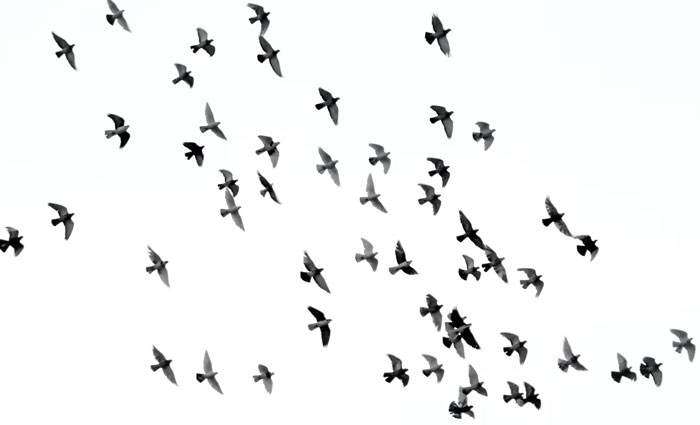 “Follow flying birds to find water.” They could be flying anywhere.
“Follow flying birds to find water.” They could be flying anywhere.
Look for animal paths instead. Animals will wear paths in the places they travel frequently. Try that, it could lead you to the animals home or to a water hole
Follow land animals. The water may be nasty, but you can probably dig a side well/boil it.
In very dry country this can be a life saver. Birds that live locally that are seed eaters such as finches and pigeons need to drink daily, and usually in the evening, And they don't fly far, so following a flock of pigeons in the evening will often lead you to water. It may be high up on a rock face, or a hole in a tree - so hope for the best such as an open water tank or dam.
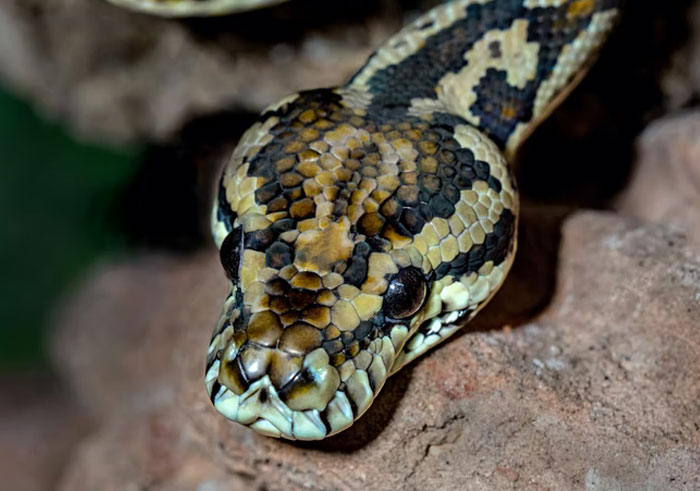 after getting bitten by a snake trying to suck out the venom, do not do that, by sucking the area of the bite your blood flows faster and increases the speed off the venom acting on your body, it'll just get to your heart quicker and kill you
after getting bitten by a snake trying to suck out the venom, do not do that, by sucking the area of the bite your blood flows faster and increases the speed off the venom acting on your body, it'll just get to your heart quicker and kill you
Not to mention that if you happen to have a cut in the mouth, that could introduce the venom to your own bloodstream.
If you've been bitten by a venomous snake it's already in your bloodstream.
Load More Replies...Don't put on a tornaquet. Those are for limbs that need to be cut off. Take off any jewlry or clothing on the limb that wont fit once the bite has swollen to twice its size. Use a marker to circle the affected areas of the bite and write the time. Do this periodically as you seek medical attention, it will let the doctors know how fast it is spreading even if you pass out. Do not lift the limb above your heart. If a friend can take a picture of the snake with their cell phone, have them do it, but don't go looking for it. Your prime goal should be to find a doctor.
Sadly even into the 1980s "first aid" handbooks were being sold everywhere where they literally taught you how to do that very stupid thing, and "snakebite kits" with razors to cut the wound to supposedly make it easier to suck, as well as tourniquets to ensure if you didn't do any other damage that you would at least cause someone to lose their arm or leg.
Yes, the scouts were notorious for promoting those.
Load More Replies...Bought a first-aid kit back in the early '70s and it had a snake bite kit. The kit contained a 2-foot long piece of rubber tubing to form a torniquet; a small and very sharp knife to cut through the two puncture wounds to bleed out the venom, a packet of condy's crystalls (Potassium permanganate) as an antiseptic to sprinkle in the wound, a two inch wide bandage, a snake identification booklet, an indelible ink pen, and a mini notebook maybe to write out your will. All this sealed up in a wax-sealed tin.
It won't work... just a gimmick. Once venom is in it it's in. Blood moves very fast.
Load More Replies...Ask the snake to say cheese, snap a photo of the snake, note the time and location on your body of the bite and call for help immediately. No phone service, then SLOWLY make your way to your vehicle, no running. Try and remain calm, keeping your blood from pumping too much and spreading venom faster. Then pray it was a dry bite.
Nester concluded that “most people who get lost in the wilds suffer from the Dayhiker Syndrome, meaning they think: “I’m just going on a short walk, or out for a few hours with the dog, or I’ll only be a few miles from home. It’s the decisions made on the couch at home before the trek that often get people into trouble since they don’t leave a travel plan or bring adequate (or any) gear with them.”
“It always starts with this little disaster-cascade of poor decisions that often leads to someone being stranded in the wilds, so Leave a Travel Plan with someone back home and always carry a small survival kit to take care of those Big 5 Priorities,” he told Bored Panda.
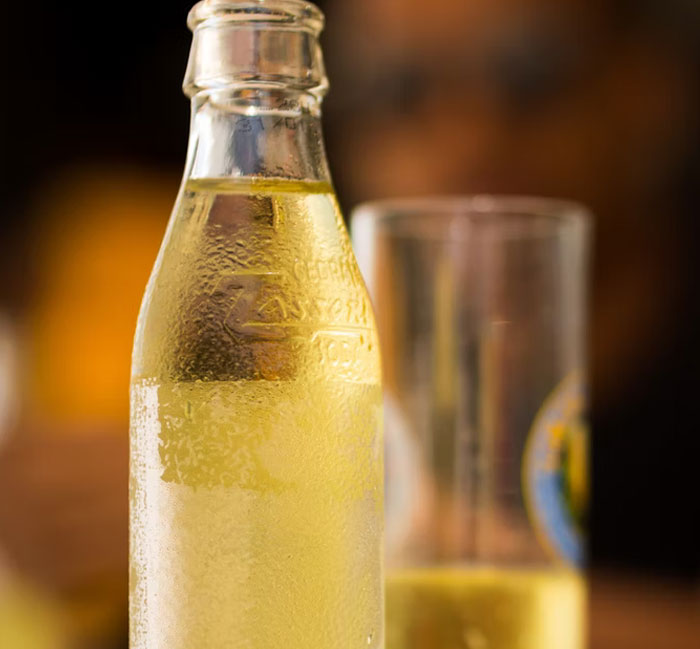 DO NOT DRINK YOUR PISS!!! I don't give a sh*t what Bear Grylls says...
Albeit, you can briefly drink your piss before getting sick, but urine is literally your body flushing out toxins from your squishy innards. Relying on drinking urine will make you more dehydrated than before, get you extremely sick i.e. fever, infection, etc. and can lead to kidney and liver damage/failure so as a survival myth it's probably one of my favorite to see people try.
DO NOT DRINK YOUR PISS!!! I don't give a sh*t what Bear Grylls says...
Albeit, you can briefly drink your piss before getting sick, but urine is literally your body flushing out toxins from your squishy innards. Relying on drinking urine will make you more dehydrated than before, get you extremely sick i.e. fever, infection, etc. and can lead to kidney and liver damage/failure so as a survival myth it's probably one of my favorite to see people try.
If it is life or death, it may sustain you for a little while, but better to follow Ray Mears' advice and distil it - from what I remember, it is a case of dig a hole, pee in it, fasten a some kind of material over the hole and form a point with it to collect the distilled water that condenses on it. [Ray Mears is another TV survival guy, but has somewhat better credentials]
This is the solar still method. Ideally, you line the hole with plastic, top it with plastic, and have a can in the middle, and put a pebble in the center of the top plastic so the condensation ends up in the cup. Works with salt water as well as urine :-)
Load More Replies...Who the hell is this Bear guy? Never heard of him and am too lazy to look him up. He seems to be giving deathly advice alot...
Bear Grylls is a guy who has a "survival show." That's been largely discredited by experts. Les Stroud is another but his show is more realistic and he's a bada@*
Load More Replies...Also, don´t put it in ice pops and feed to your kids. (https://www.newsweek.com/i-would-have-restrained-internet-eviscerates-parent-adding-urine-popsicles-1667792)
I had a friend when I was 8 who once (jokingly, I hope) suggested making popsicles from frozen piss.
Load More Replies...Using a solar still or hand made water filter is far better. Don’t think boiling the water makes it okay, it may kill pathogens but it will concentrate chemicals.
Still boil it after you filter it, just to be safe, if it's not solar still, is what I was taught. Of course, I suck water straight from sphagnum moss, but taht stuff is like iodine solution!
Load More Replies...If you can find the materials, some scrap plastic, a uses or makeshift cup, you can use evaporation to distill pure water from urine. That is the ONLY safe way to recycle and consume urine.
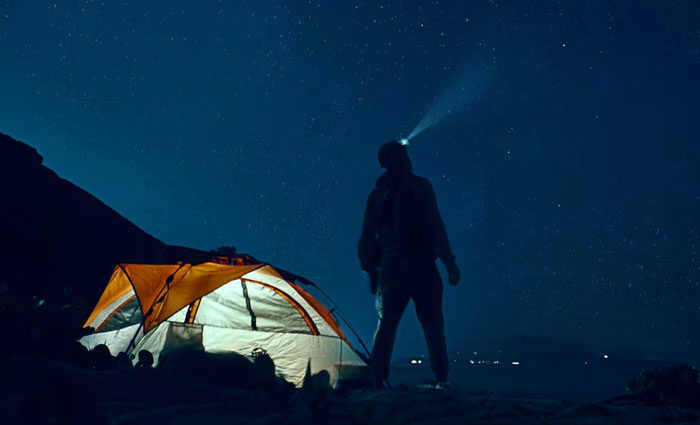 Taking off all your clothes and snuggle with someone to prevent frostbite or hypothermia.
This does not work, you’ll just be found dead and naked.
It is great for survival of the species though.
Taking off all your clothes and snuggle with someone to prevent frostbite or hypothermia.
This does not work, you’ll just be found dead and naked.
It is great for survival of the species though.
If you're soaked wet, removal of clothing *slows* hypothermia. And snuggling does help. I really wish this wasn't all posted as "yes-no" and without context. *sigh*
Load More Replies...If your clothes are wet, this is good advice. If your clothes are dry, don't take them off, but snuggle anyway. Keep the sources of heat together.
If your clothes are wet, then it's better to be naked, because the wet clothes will continue to leach the heat from you. In fact, if you have to cross cold water, you are better off doing it naked and trying to keep your clothes dry. Once your clothes become wet in the extreme cold, they are more of a liability than a help.
I think there's a basic misunderstanding here. The idea of taking off your clothes to snuggle, is to raise the body temperature of someone who is already suffering from hypothermia. Trying to raise their body temperature in any other way, such as a fire, will likely result in their death. If it's possible, skin to skin contact inside a sleeping bag or other insulated covering could well save their life. It assumes, however, that you are warm and dry and not also suffering from hypothermia. If the victim is wet, strip/cut off their wet clothes before doing this, or you will only succeed in lowering your own body temperature. As with all advice of this type, it is first aid, not a cure for anything. Hopefully you are not alone if you have to do this.
This. It's useful in a specific case, it is not a general solution! You've got one in your party that broke through the snow and fell into a hidden stream, yes, the strip & sleeping bag approach is a good thing. You have a bunch of cold people, no.
Load More Replies...If I'm found dead and naked, that will be the stiffest I will ever be.
Anyone else thinking about that scene from one of those Twilight movies?
I was actually thinking the scene with di caprio in "the revenant"! He removed all his clothes because he was wet but i don't know how easy it is to find a horse carcass...
Load More Replies...The second time I was home invaded, a man broke into my house with full intent on murdering me. I fought back and survived through training, experience in crisis and whatever luck was afforded which gave me the opportunity to turn the tables, no more worse for wear than a scar on my head after 27 stitches. My friend was with me who was very nearly struck by this degenerate, but he got out of the way, got the f*ck out of there to across the street to the neighbours house and called the police. To this day he keeps apologising for not “doing more” like he should have been expected to turn into some kind of action hero and help fight him off. What he did is actually the correct thing to do. Although the police response time wasn’t quick enough to have saved me, they did catch the ass**le dead to rights on my property after what he tried to do. My friend is a very talented software developer and a lovely guy, always chipper no matter what, who most likely would have gotten hurt or worse had he tried to intervene, and there’d be no-one to call the police. Don’t feel you have to charge into an altercation you may not survive. Fleeing to a place of safety and calling the police should be your first priority. All the martial arts dojos, self-defense “gurus” or whatever people try to peddle that pretend “works every time” will not prepare you for being in a visceral fight for your life. They just want your money and will get you killed
I work in a homeless shelter. Our guests rarely get into physical fights, but it does happen. My immediate response is always to tell my coworker to call 911. Then I go to the fight and yell at the guests to stop. If they stop, good. If not, I'm able to give info to cops and EMTs. I will never wade into a fight. Cops have training and equipment - let them handle it.
Trouble is, if they are not white the US police will probably just shoot them.
Load More Replies...Watch out for fake self-defense videos -- there are a huge number of them.
There is a reason I keep a heavey geode in my room, I mean other than it's pretty, it's f*****g heavy.
What are you doing for murderers and robbers to come into your house?
And you thought your comment was funny and clever that makes you wrong twice in one sentence
Load More Replies...That your body “begins to break down muscle” a short time after not eating food. This is a dangerous lie. The body does not cannibalise muscle tissue until it is a last resort and unless you are very close to 0% body fat (most people are NOT), you will have ample supplies of fat to last you for quite a while - weeks, maybe even months. So don’t rush, you have time !
I always wonder why people act like food is such an urgent priority in a survival situation. I mean sure you feel hungry but it's not like you're going to immediately die of hunger. There are other higher priorities.
If you have blood sugar issues, yeah, it's vital, but generally, hydration, shelter/warmth, and then food eventually ----- you can live up to three weeks off body fat if you're in low-activity mode. If not, two or so, is the rule I learned.
Load More Replies...Why would ranger schools want their pupils to start breaking down muscle????
Load More Replies...Actually, even this is wrong. The body cannot convert muscle into a usable source of food even as a last resource. Muscle starts to shrink because lack of food, water and decreased blood flow making you weak, but it can never be converted to food by your own body. (Does not mean someone could not cannibalize you!)
Muscle loss is not the same as deriving energy from muscle tissue. It diminishes when it stops being sustained or stress loads vary. IF will lead to initial muscle loss, then it stabilizes as you reach a better metabolic balance.
Load More Replies...You certainly can if you have adequate shelter and water....
Load More Replies...You should not try running away from an angry and agressive dog. You will not escape it. Instead, stop, and yell at it to show dominance. If it bites you, do not waste your time trying to pry it's jaws open. What you should do is lift it up by it's hind legs or choking it. This also works in breaking up dog fights. (The legs part not the choking)
Never try to pull your (insert any body part here) away from a dog bite. push farther into it's mouth if you can. if it's a finger or two, down the throat if possible. if it's your arm or leg, push against the mouth instead of away. pulling away will tear your skin. pushing toward the mouth may make more puncture holes but it's more likely to let go Source: I'm a vet tech/vet nurse
I was taught to face the dog but o not make eye contact, try to shove something like a purse/package into the dog's mouth. If it bites your arm, try to grab the back of the dog's head to shive your forearm deep into the dog's mouth, while you use one leg to jam your knee into the dog's stomach area. You may be able to rupture it's spleen, thereby ending the dog & attack!! Or try: Fingers into eyes, ears or butt hole (yes, I said that) may also help.
you know, if i were being mauled, and could reach a dog’s bum, i would def consider it. it’s like magic, they let go. the issue is getting away after you’ve violated the dog’s a**s.
Load More Replies...I had an encounter with a pit bull once while walking down a street with my big, thick rectangular bag. It trotted up to me, I froze, almost pissed myself, put my bag in front of my legs and as it started circling me I started moving with it until I finally spotted its idiot owner and called to him to get his dog back. 20 years later I tend to get angry rather than scared by dogs and it's good to see that experts advise to push your arm into an attacking dog's mouth since that's exactly what I've told myself I'd do in such a situation to avoid worse damage.
I agree that running away is the stupidest thing you can do – you run and you've just made yourself prey. And yes there's no way you're prying open its jaws so don't even waste time trying, if anything you'll get bitten more. But I can't for the life of me imagine if a dog is biting you, how you'd manage to lift it by its hind legs or choke it. Maybe if it's biting your leg? Only time I've ever been bitten by a dog was my hand.
I've never been afraid of dogs, nor will I put up with them trying to attack me; I think that attitude has served me well.
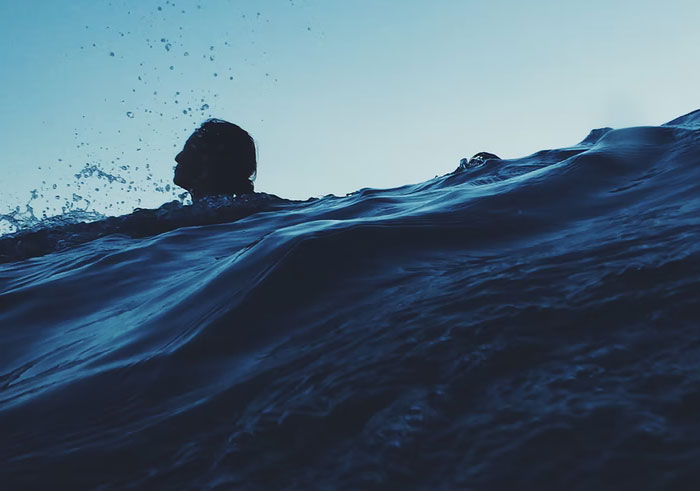 Drowning people do not cry for help or make gestures to try and get someone’s attention.
What they are doing is trying to stay afloat and trying to catch their breath; never count on a cry for help!
Drowning people do not cry for help or make gestures to try and get someone’s attention.
What they are doing is trying to stay afloat and trying to catch their breath; never count on a cry for help!
Easiest way to tell is that their faces are upturned in the water, rather than facing forward, because they are trying to keep the breathing apparatus out of the water. Also, you will see light splashing of the arms as they try to paddle, but the upturned face is sometimes your only clue.
This happened at a summer camp when I was a kid. I was standing right next to a short friend in a lake. I had no idea he was treading water (I wasn't), much less struggling, until the lifeguard bailed in and pulled him up. Good for him that she was amazingly attentive and good at her job. I was less than 2 feet away from the guy and had no idea he was in distress. So quiet and so fast. Turns out his shoes had filled up with water and he was being dragged down. That was something else I didn't know could happen. Get appropriate footwear!
I used to work as a life guard and this is entirely true. One of the first things a drowning person is going to do is panic and do anything possible to try to stay afloat. We were often taught to look for flailing arms with the head tilted upward mouth slightly agape above water level. One of the reasons you'll see life guards carry a personal flotation device is to create a barrier between themselves and the drowning person. A person who is drowning is in a state of panic and will often grab for the life-guard or rescuer's head, neck, or shoulders and end up dragging the other person down.
This. And much more extreme caution if attempting a rescue..its easier for the rescuer to die and the drowning person to survive if you dont know what you are doing. ....their first instinct is to get air and they will push you down just for that gasp which ends up with the rescuer underwater for minutes and nextday news headlines: Lifeguard saves man but ends up dead blah blah
Speaking as a former Waterfront lifeguard, there are different types of drowning 1)Distressed, 2) Active, 3) Passive face Down, 4) Passive face up. and 3 and 4 can be both above and below the water. If they dip below you can actually track the bubbles (which we were trained to do) as long as the waves are not too strong, and you can stop them
Drowning victems cannot grab onto thrown objects very well, as they are relatuvly distracted. If it is a child and you can reach them while you are touching the bottom, you can lift them up. If you cannot touch the bottem where they are, DO NOT GO AFTER THEM. It doesn't matter how good of a swimmer you are, unless you are lifeguard with regular practice sessions, you need to find one.
 For the love of God don't pee on jellyfish stings. This can cause an Infection, use salt water to clear the wound area, then rubbing alcohol or vinegar.
I'm seriously concerned on how much media I watched growing up had this survival tip that is completely false.
For the love of God don't pee on jellyfish stings. This can cause an Infection, use salt water to clear the wound area, then rubbing alcohol or vinegar.
I'm seriously concerned on how much media I watched growing up had this survival tip that is completely false.
Just watched Bondi Rescue and they recommend warm/hot water for Bluebottle stings. Hot water (under 46°C/115°F) inactivates the jellyfish toxins and so stops the pain; it is effective in about 90% of cases after 20 minutes.
There was a Bear Grylls made Mel B pee on his hand for a jellyfish sting for his show. He acted like it really helped -- then later admitted that he faked that relief for the show. At least he's not a hypocrite! He often seems to admit that his show is full of sh*t
Peter Benchley's The Island--at least the book, I don't know about the movie--pulls this one. A secret multigenerational band of old-school pirates throw jellyfish on those who violate their code; the "wench" caught helping the main character try to escape shares his punishment and then demands that they urinate on each other to ease the stings. I think maybe somebody just had a fetish.
Peter Benchly needs to stick to writing. He has a lot of opinions and very little facts
Load More Replies...No use in the outdoors, but I've found that plunging a burn into ice water WORKS. Remove it when the cold becomes painful, put it back in when the burn starts feeling hot again. Remove it for good when the pain is no longer there. I recently found that this also works on a bad bruise when I got a finger caught in a closing door. I stuck it in ice water, and only stopped when it no longer hurt outside the ice water. I think that in both cases, it's suppressing inflammation, but that's just a guess.
Load More Replies... 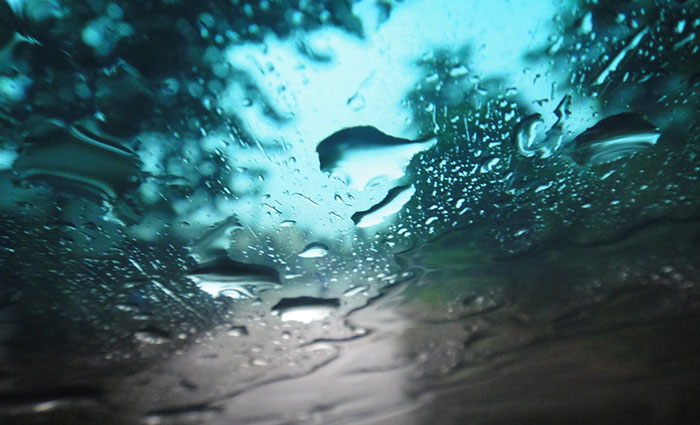 If you go into a lake when in a car dont wait until the car fills with water, just open the window and get out ASAP. If you wait, you could be 200 feet down or flipped over on the bottom. The power will still work for a short time. It only takes a few seconds.
If you go into a lake when in a car dont wait until the car fills with water, just open the window and get out ASAP. If you wait, you could be 200 feet down or flipped over on the bottom. The power will still work for a short time. It only takes a few seconds.
Wait, is there anyone who actually waits for the car to be filled with water??
Thanks to the old stories about pressure needing to be equal to open the door, yes. Just open the frigging door or window ASAP, or use a life-hammer to break the window, and go go go!
Load More Replies...It all depends how fast you will get rid of seat belt. Car with closed doors floats for like up to a minute, so you have to act quick, and do not panic. You can open window before car goes under water, but firstly You have unlock seat belts. If you open window but belt will stuck you are in bigger trouble because car will drown much faster from moment the waterline reach opened window.
If you move to Colorado - where there are a lot of bears - do not keep a salami in your pocket to “feed the bear”, unless you think you can live a life without legs. Black bears can smell a salami at five Miles. What are you thinking? And they run faster than a horse. So if you were thinking about outrunning them on a horse, I would try a cheetah. You in tight pants, are a salami to a black bear. Do you understand? You’re like a giant walking salami.
Man, I could NOT keep a salami in my pocket. I'd eat it after five minutes.
Bears just seem to assume that is a salami in your pocket and not that you're happy to see them.
Don't give bears food. They will not belive you when you say you don't have more, they can't understand English. If they approach you and get salami, then you will become their official salami source. You are absolutly salami. The fact that such an idiotic idea is out there is absurd to me. What the actual heck.
Exactly - as I learned from a trip to Colorado, their outdoor garbage cans are specifically designed in a way so that bears can't get in to prevent this kind of thing from happening. If even getting food from a garbage can would teach bears that there's food around here and they should keep coming back, I would think that specifically giving them food is an even worse idea.
Load More Replies...Even where I live now I typically don't keep a salami in my pocket, so luckily that's one less bad habit I will have to break if I ever move to Colorado.
 Punching the biggest guy in prison on your first day.
Punching the biggest guy in prison on your first day.
Prison. Try minding nothing but your business, don't make eye contact, and above all, observe and learn fast. Don't gamble or incur debt, and definitely do fly beneath the radar. And above all, don't snitch. And take advantage of any viable education programs available. If you're reading on bp, prison may not be for you anyways, so forget all about shanks and punching big dudes, and live your life in peace.
I've heard, that people make too much of the violence, in prison. Like it's as bad as you see in TV shows (that should prove something....) Sure it can be violent, but most people just want to do their time, hassle free and don't go looking for trouble....like punching the biggest prisoner, on your first day.....
You should punch the biggest guy in prison one way not to think about being in prison is if your knock out
It might work if you are a true badass. But most likely you are going to get your ass beat to a pulp and get the reputation of being a total d**k.
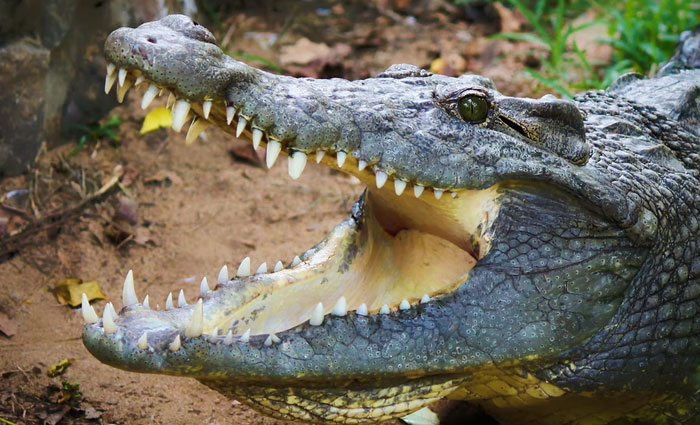 Zigzag to escape an alligator.
Alligators can turn, but can/will only run in short bursts. Just run as fast as you can.
Zigzag to escape an alligator.
Alligators can turn, but can/will only run in short bursts. Just run as fast as you can.
I didn't grow up in Florida and I have. Guess that says something....
Load More Replies...was this idea based on the fact that zebras zigzag to escape predators?
Question for Pandas: Does zigzag run actually work against any animal? Also, a hard 90-degree turn and then running may give you an advantage is what I was told, so anyone? (We would do a hard 90* turn if a bull got angry and charged, b/c the bull couldn't stop and turn as fast as we could.)
the zigzag method is better for when your running away from someone armed
Aligators can turn, just not as fast. Do both. Run fast, if they start to gain, change direction. Repeat until the alligator decides you're not worth it
I always maintain that an alligator may be able to out-run me but they cannot out-climb me. I swear I would be able to run straight up a tree trunk!.
"Don't call 911 but change your voice-mail to let people know where you are" if you're stranded and need help. CALL 911 You can lose valuable battery power futzing around with voice-mail, but you can use low power mode and still call 911.
Also always tell your location first on a 911 call, if the connection gets lost (or in any other way disrupted) they at least know where to send help
As a 911 dispatcher yes please tell us location first. I may not know what's going on but I can get someone to you and if you are in an unfamiliar location pay attention to mile marker and highway/ street signs every detail helps. It could literally save your life
Load More Replies...And informing emergency services about your situation, they can immediately start to act.. what if no one calls you or doesnt bother to wait until voice-mail. Now days there is also apps that let you allow emergency operator to see your gps location.
There is actually a system built into modern mobile phones that allows this automatically, no apps needed.
Load More Replies...In the UK more and more places are starting to use the " what 3 words" app. Great idea if it works as intended.
How about do both? Call 911 first though! The voicemail is so your friends and family will know where you are and you're in trouble and have called 911. They'll be prepared for your arrival and can give information to medical professionals if you became inable to.
Keep a mobile phone without a sim card charging in the car. You can call the emergency services without the need for a sim card - provided the phone is charged of course
Mythbuster tested the myth about ships dragging people down with them. They rated this myth as false. But they were wrong. "Surfacing, Lightoller spotted the ship's crow's nest, now level with the water, and started to swim towards it as a place of safety before remembering that it was safer to stay away from the foundering vessel. Then, as water flooded down one of the forward ventilators, Lightoller was sucked under. He was pinned against the grating for some time by the pressure of the incoming water, until a blast of hot air from the depths of the ship erupted out of the ventilator and blew him to the surface." https://en.wikipedia.org/wiki/Charles_Lightoller Large ships are incredibly dangerous when they are sinking, they can drag you down with them or they can roll on top of you. You should always swim away from them.
That is sometimes the problem with mythbusters. They don't always consider the size in the myth...just the physics. In this particular instance (IIRC) they tested this with a 15 foot boat.
To be fair, I don't think Mythbusters could afford to buy a cruise ship just so they could sink it. ;-)
Load More Replies...You should rub frostbitten skin. Don’t. Ever. Frostbite occurs when ice crystals form in your skin and other tissues. Rubbing the injury causes more tissue damage as the ice crystals lacerate new cells. Instead, treat the victim with painkillers as you slowly rewarm the tissue—frostbite hurts! Also, you can't survive solely off natural survival foods. Any survival book will show you how to harvest inner tree bark for food or how to boil (and re-boil) lily-pad tubers and skunk cabbage so they are palatable. You’ll also learn that hemlock needles are edible, plus how to cook and eat snails and so on. These are considered “survival foods” because they’re things that are edible that you wouldn’t likely eat in a normal situation. The myth here is that you can survive off them for an extended length of time. But the reality is if you are only eating “survival foods,” you’ll start feel to sick and weak after a day or two. (Some of these survival foods also have little to zero caloric value, which makes them pointless to eat.)
Definetly don't rub frostbite. And be aware that you might have to not rub it for a long time, frostbite can take a while to get over. I've had a very mild case of it, my toes felt like a hockey puck on the end of my foot for a few days and my thumb was sore for almost a week.
I don't know if this is considered as a survival myth but engaging street fights is never a good option. If there is is an altercation that may lead to a street fight, just stay calm and run away from the situation. No one wins real street fight someone will either end up in a hospital or in a funeral that's just the truth.
Having a lot of high tech gear or military looking stuff is a good thing. If you are in a sh*t hits the fan situation and look like you have a lot of good gear, you are getting jumped or killed for it. Be a grey man, blend in, look average in a panic situation.
Even in normal times, that "NRA" sticker on your house tells thieves that you own expensive guns and are not home all the time.
I don’t know if this is a tip necessary but humans can easily go a week if not 2 without any food. No water is another story so that’s more important if you ever find yourself in that situation.
I read the rule of thumb is 3 minutes without oxygen, 3 days without water, and 3 weeks without food.
Not taking the brace position on planes. PLEASE FOR THE LOVE OF GOD JUST BRACE, IT *WILL* SAVE YOU.
If your plane plummets downwards at several hundred miles and hour and hits the ground, bracing will not save you. If a crash is at all survivable, then bracing forward may prevent some whiplash and injuries from flying debris. The main problem is that the space between rows of seats has become so narrow that it's very hard for most people to be in the correct brace position.
I agree, but the point is that a small chance, is better than no chance.
Load More Replies...Meh if its not like water landing you probably still die, but with brace position its easier to distinguish copses when they have their head attached to their body :D
That you can easily disarm someone holding you at gun point.
If you are trained and a lot quicker and/or stronger than your assailant, sure. I think the most important thing to remember is that if someone is willing to kill you if you don't follow a specific command, then they are willing to kill you at any time. Don't follow them to a second, quieter spot. Make noise, lots of noise. Get attention.
My martial Arts instructor said RUN AWAY. It's much harder to hit a moving target, and much less likely they will hit something vital.
i heard something that says to look them in the eye and tell them facts about yourself to make them realise your a person. Idk if its true tho
Do you know how close to a gunman you have to be in order to disarm them? Yeah, no.
Load More Replies...If you're in a life-threatening situation and lost without supplies, illnesses/diseases in unfiltered water will kill you way slower than dehydration; drink the damn water and deal with the consequences later, when you're found.
There are so many ways to sterilize/filter water! Try something first!
This....if you are literally naked, in a remote local..the situation may be desperate enough, but typically you can adapt. Afterall, we evolved on this planet. First rule should always be take stock of your situation, before doing anything.
Load More Replies...Not sure I'm on board with this one. Having contracted several different intestinal parasites over the years, one of which left me in and out of the hospital critical care unit for several months, this is not sound advice. Lost *and* dealing with unstoppable diarrhea/vomiting that leaves you too weak and delirious to even think, much less make your way to safety is NOT a solid plan of action.
Once I got separated from the group of walkers on a farm, still a good hour to the house, boiling hot day, I've had already drunk all the water I had. Then I spotted a shed, I thought I'd just sit in the shade for a while, there was a trough with seemingly clean water in it, no idea if it was filled recently or was rain water but I happily refilled my bottle with the water on the trough as I thought it was far better than pass out with heat exhaustion. Didn't die 😁 or fell sick
In desert people say don't take warm clothes. They don't know that at the night in desert - temperature
Desert means a dry environment, not "hot, sandy place" - the Antartica for example is a desert as well
Fun fact about Antarctica! There is a place there where it has not rained for 2.1million years!
Load More Replies...This also applies to summer trips to the mountains! I've been in the Rocky Mountains in June & July and got snowed on. Took a trip to Grand Lake CO with husband's family in the middle of June of 2009 - the two of us packed one set of winter clothes while everyone else brought nothing but shorts & t-shirts. Second morning, we woke up to 3 inches of snow! Everyone else had to run to WalMart to buy extra clothes while husband & I pulled on the long under wear, jeans, sweaters, & down filled jackets, stayed warm all day, lol
We had one novice backpacker take a trip with us in the summer. She didn't realize that it could be cold (freezing cold) in higher altitudes (typically where backpackers on the east coast end up). She brought a summer sleeping bag with her. We had to provide her with a sleeping bag liner and warm clothes for the night.
Let's make one thing clear. The desert has the same temperature swings as all other environments. It's not 120 degrees in the day and 40 at night. If it's 120 in the day, you are lucky if it gets down to 80 at night.
The contrast in temperature will make it feel colder.
Load More Replies...Not necessarily for your own survival but putting something in someone's mouth who is seizing. You risk getting your finger bitten off and it is a choking risk. They won’t swallow their tongue.
Yes. Never put anything in a seizing persons mouth. We have emergency medicine for my sons seizures and it goes in the, ah, other way.
It's crazy how many people think people in seizures need immediate rough handling of some sort (OMG they'll swallow their tongue!!). No they don't need further stimulation that can increase the seizure time. But time the seizure -- if it's still going after two minutes do you need to start giving air and chest compressions because they can't breathe while seizing.
Call 911, Cushin the head, time the siezure. Dont hold them down, stay clear of flialing limbs, they can hit harder than you think.
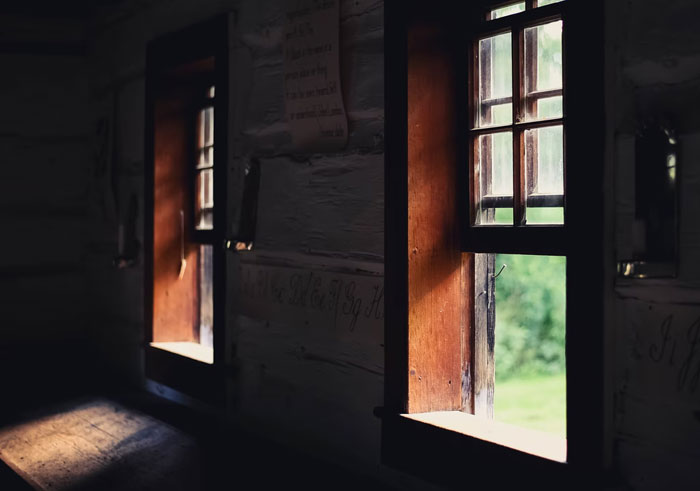 Opening windows during a Tornado.
Even as a child growing up in the Midwest I never understood this, I always thought doesn’t it let the high winds in?
I remember in first grade we had a tornado warning and some of the teachers where wasting time by opening windows
Opening windows during a Tornado.
Even as a child growing up in the Midwest I never understood this, I always thought doesn’t it let the high winds in?
I remember in first grade we had a tornado warning and some of the teachers where wasting time by opening windows
No. It allows flying debris to enter the home. It wastes time. And while the broken glass is a hazard if the windows are shut, guess what? Even an open window *has glass*. So.... no. You're looking at a wind of 110-250 miles per hour (start around 180 km/hr and work up). Your best safety is a shelter underground, screw the windows.
Load More Replies...I live on the Gulf Coast with hurricanes; never make an opening in the home for wind to get in. That's what causes the damage.
There's a belief going around keeping windows closed will cause your house to explode with the air pressure. I tried telling my mom this but she was adamant she knew someone who closed their windows and their house exploded. Don't think that's what really happened.
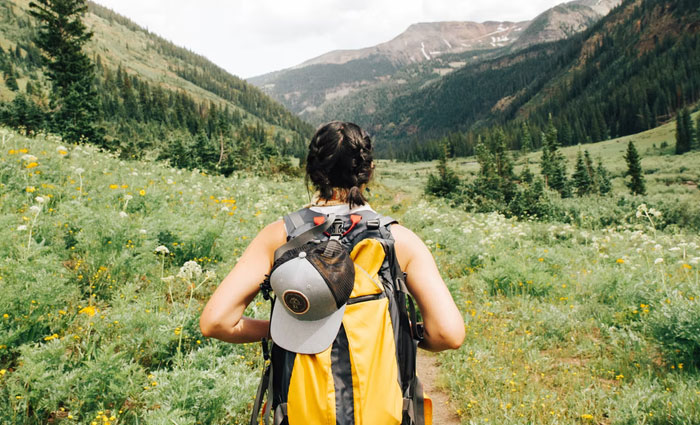 "You won't need that we won't be gone long."
Carry basic survival tools whenever you go out hiking, hunting, camping, etc.
Things like a magnesium with flint and steel fire starter, a life straw or water purification tablets don't weigh much or take up much space and can be a lifesaver.
Many get lost on short trips or get injured leaving them stuck in the wilderness. It doesn't take a massive forest or jungle to get lost.
In my personal hunting pack I always carry a survival knife, firestarter, and lifestraw. These three items may not guarantee survival, but they improve my odds.
"You won't need that we won't be gone long."
Carry basic survival tools whenever you go out hiking, hunting, camping, etc.
Things like a magnesium with flint and steel fire starter, a life straw or water purification tablets don't weigh much or take up much space and can be a lifesaver.
Many get lost on short trips or get injured leaving them stuck in the wilderness. It doesn't take a massive forest or jungle to get lost.
In my personal hunting pack I always carry a survival knife, firestarter, and lifestraw. These three items may not guarantee survival, but they improve my odds.
Guy local died few years back. "I've hiked htis all my life, I'm fine," he said, and left his house. Found him dead 3 days later. Exposure.
I read "exposure" and thought that the trees had offered him an unpaid retail job.
Load More Replies...A person is better off carrying a whistle, an insulated SOL emergency blanket, a headlamp, food and high quality water filter. I carry more, including knife, custom made handsaw and three different ways to make fire. Everything fits in a relatively small pouch. Your best survival gear is telling someone your plans, carrying a map and situational awareness
I carry flint and steel, along with a handy butane dispenser. AKA a Bic lighter.
Listen to your employer when they say that it will be safe to continue working when there is a category 4 or 5 tornado warning. Edit: What you really should do is, if you have time, leave work if it is in the predicted path of the tornado. If there is not enough time, stop working and seek shelter inside a protected part of the building.
And if you work in an Amazon warehouse in tornado country - quit. They won't even let you have your phone with you, so you won't even know about the tornado.
I still remember that about a month ago, there was an Amazon warehouse in Kentucky that was destroyed in a tornado, and several employees died because they weren't allowed to leave. In general, "If you work at an Amazon warehouse, quit" is sound advice.
Load More Replies...Go to the bathroom while a tornado. The walls are most secure there (the pipes isn’t the wall) and hold on to the bathtub
Tell that to the Amazon managers and the candle manufacturer owner in Kentucky
Load More Replies...It probably won't get you killed, but remember that sudden, dramatic changes in diet are really bad for you. If you're doing disaster preparedness and need to stockpile some food, make sure it isn't too different from your everyday diet or you could get yourself sick, which is the last thing you need during a disaster. Also, there's just no good reason to force yourself and others to change diets during a disaster. Like yeah, you can eat cans of spam in a disaster, but cliff bars and chocolate work just as well.
I heard that happened to Lois and Clark on their expedition. They ate food available in the different regions and ended up getting sick or something. What's great now is many places have such an assortment of foods, if you've been adding a lot of variety into your diet, you're gut can adjust easier.
Maybe not “survival” but ripping a grenade pin with your teeth. Might not get killed, but I guarantee you will lose a lot of blood in the process.
Because of war movies showing the "hero" pulling the pin out with his teeth while holding the grenade in the one usable hand he has left (possibly after losing the use of the other hand/arm), then tossing it at the very last moment, thus saving the lives of his fellow solders/innocent women & children. Typical U.S. military & Hollywood "patriotic" propaganda.
Load More Replies...Keeping a first aid kit in your car. Of the commercial kits on the market 90% are "little owie" class kits. Take a real first aid course, learn what should be in a kit and make one yourself. And if you do buy one, go through it and understand what everything in it does and how to use it. Periodically check to make sure it is OK, replace anything that is past its use by date. An emergency is a really sh*tty time to discover that you can't close a major laceration with 100 expired "My Pet Monster" bandaids and a pair of "As seen on TV" scissors that are rusted shut.
Having those are required by law here in Germany, and a proper first aid lecture is a mandatory part for passing driving school
Once you have properly equipped first aid kits, it’s important to store them where they’re likely to be needed: in plain view on the back of the driver’s seat, for example, not in the trunk under the hockey equipment; in the basement next to the bandsaw instead of upstairs in the linen closet behind the clean tea towels; next to the fire extinguisher in the kitchen instead of buried in the junk drawer. And try to include an Israeli compression bandage in each of them. Time is everything when someone is bleeding out.
The adhesive gives out, doesn't hold as anticipated.
Load More Replies...You absolutely can not run across the chins and snouts of open gator or croc mouths.
No but back in the days I had a video game when a man swung over some on a vine
That's what the do in cartoons. Darned if that rabbit isn't back the next week!
Myth: if you hear a land mine click, stand still or try to replace your weight. False! If you hear a click, it wasn't a landmine... or you just got incredibly lucky (misfire). If you try to replace your weight, you INCREASE the chances of setting it off. Gently step off it, the exact way you stepped on it, then just back the f*ck out, following your footsteps the whole way out... Why step off? Get clear off the "X" (as in X marks the spot, the focal point of an ambush). A moving target is a harder target."
Does it depend on the type of landmine? When or where it was made? Doesn't "replace your weight" work on mercury switch detonators?
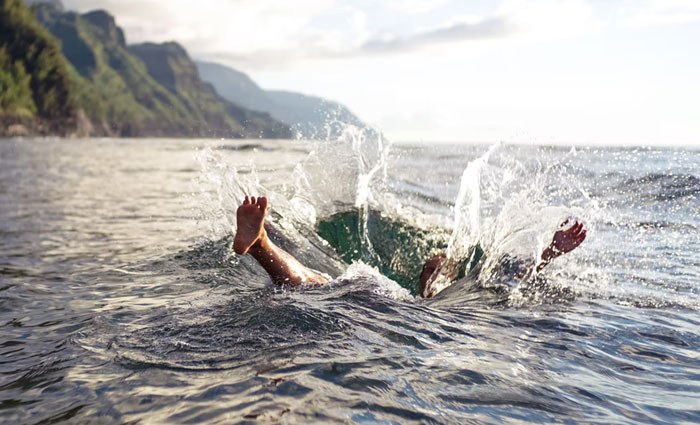 Landing in water from high up is going to kill you. 10 meters, 15, maaaaaybe 20, you might you'll probably be fine if you land properly. Get much higher than that is getting into broken bones and death territory.
Landing in water from high up is going to kill you. 10 meters, 15, maaaaaybe 20, you might you'll probably be fine if you land properly. Get much higher than that is getting into broken bones and death territory.
A tampon is not going to fix massive bleeding. (The myth is putting a tampon in a bullet wound will stop the bleeding... it wont). One of the best survival things you can have/ know to use is a tourniquet. It can save you or someone else life.
Depends where the wound is. Applying pressure is the best option for most wounds.
My uncle was in a very dark place,and shot himself in the stomach. The bleeding was a lot an the paramedics got there quickly. To help stabilize him, and slow the blood loss; they wrapped his stomach in plastic cling wrap the type you use in the kitchen. Doctors said it most likely saved him from bleeding out in route to the hospital.
Davo, that's so sad to hear. I hope he's in a better place now
Load More Replies...Depends on how bad the bleeding is. The tornaquet is to stop the blood from being pumped into the limb. Once there is no blood left, doctors will likely amputate the limb. You use a tornaquet when a hole in your limb is going to drain all the blood out of your body-like its spurting blood or you see an artery. You use a tornaquet when the cgoise is between your life and your limb.
An Israeli compression bandage works better than a tourniquet on limbs. They were specially engineered for combat wounds and stop the bleeding without putting the tissue below the bandage at risk. I have one in each of my first aid kits, and an extra one in a little pouch bungeed to the lawn mower.
Load More Replies...There are multiple types of coagulating powder that stop bleeding; there's some in my first aid kit. They are much better for most bleeds than a tourniquet. Some is made from potato starch, so take one everywhere or maybe carry dehydrated mashed potatoes.
If someone breaks into your house and takes you and your family captive, you absolutely need to run away even if they threaten to kill your family members if you do. It may seem cowardly, but running away to a neighbor’s house for help and leaving your toddler with the captor is more likely to save all of your lives than staying.
That's a tough one. If you have a deranged guy in your home, I don't know of many parents who would leave their toddler there and run for help... That's got to be a terrible scenario to be put in.
Yeah I could not do that to my daughter!
Load More Replies...That puts you in a child welfare conundrum that could be used against you, and you could risk losing custody of your kids, or having your kids kidnapped.
Splitting up is a good idea.
Depends on whether you are single, dating or in a group thingy.. If alone I wouldn't recommend...how could it even??? 🤣🤣🤣🤣 Imma head out now....
If you’re in a haunted house that has a killer, duh!
Load More Replies...You always hear in Australia to rub a bit of Vegemite behind your ears to keep the drop bears away. This does not work at all and makes no difference if they attack you or not. Just stay away from tall trees at night when our in the bush.
There is no such thing as a drop bear. That should also help in your fight against the creatures.
Man, you obviously have never been attacked by those creatures! Thylarctus Plummetus is amongst the nastier beasts in Oz.
Load More Replies...This should have been formatted a bit more clearly. Myth: describe the myth. Fact: describe the correct information.
Many of these points are confusing. The do or don't? Some are clear, some are questionable at best.
I was going to say that, but less kindly. Thank you.
Load More Replies...Carry with you: Hunting knife; butane lighter; cotton balls; lifestraw (filtering straw); emergency blanket of the kind that folds up tiny; ditto a trashbag (it's a raincoat or a tent roof!; three days of any meds you are prescribed; a plain white undershirt for use as towel or extra layer; and, yes, I get that all into my purse without needing a huge one. Also have a flashlight and whistle. :-) But I'm not paranoid. Not at all... /s/
And that’s just when I go grocery shopping, is it?
Load More Replies...Another one that was making the rounds recently: when lost and your battery is dying, change your voicemail to your whereabouts. It’s a load of bull. To be able to call your voicemail, you need reception. So it’s not gonna help you any if you don’t have coverage. Also it’s probably gonna take a while for someone to notice. Call or text 911 instead. As long as there’s reception of any network, your call will go through, and the help will probably get to you faster
The fact is most people are not going to experience any of these issues or situation most accidents happen within the home or within 5 miles of the home. So get your camping equipment out for the tornado or the hurricane or the earthquake invest in a couple of survival items including some dehydrated food or make your own make sure that you have some thing at the office and some thing in your car including comfortable shoes last thing you wanna have to deal with is trying to walk someplace to get the help you need a pair high-heeled shoes while you’re trying to walk to safety. The best survival tool you have is your brain so fill it up with tools that you can get from taking a first aid CPR class and/or a CERT class. Be safe everyone
The best way to get out of a dangerous situation is to not put yourself in it to begin with. But if you know you are going somewhere where things could possibly go wrong, be prepared. Learn about what you might encounter. Read a bit. Make sure you have emergency equipment and supplies.
I'm not trying to sound like I know it all but there was honestly not one thing on this list that I didn't already know. Maybe it's just because I read a lot. Or maybe it's because all this was super obvious 🤔
The top ones are good. Toward the bottom, they were glat out wrong, or just stupid.
Hmmm I would take the bear one with a pinch of salt, I've seen all episodes of Alaskan Bush People and bears definitely run down hill, this may be the only thing that is true in that program!!
I know the Alaska "bush" people. The Browns are sadly controlled by their father... and poor Noah should have disobeyed him and got the medical attention he needed for his leg. He will never walk properly again. Plus they sank their boat hitting the harbor breakwater (rock wall) because it wasn't seaworthy. Could have ended up sinking on the 50 mile journey to Prince Of Whales Island and the camera crew would've watched and done nothing.
Load More Replies...As a Floridian, whenever you are near freshwater, bring a bucket of rocks. Statistically speaking, if you see a fresh body in Fl, there is a gator in it. You can use rocks to throw at them. Also, if a gator bites you, plug their nose with their fingers. The gator won't be able to breathe and will open their mouth and you can escape. The Alligator Farm in St Augustine told a young tourist and she plugged the gator's nose and lived.
This should have been formatted a bit more clearly. Myth: describe the myth. Fact: describe the correct information.
Many of these points are confusing. The do or don't? Some are clear, some are questionable at best.
I was going to say that, but less kindly. Thank you.
Load More Replies...Carry with you: Hunting knife; butane lighter; cotton balls; lifestraw (filtering straw); emergency blanket of the kind that folds up tiny; ditto a trashbag (it's a raincoat or a tent roof!; three days of any meds you are prescribed; a plain white undershirt for use as towel or extra layer; and, yes, I get that all into my purse without needing a huge one. Also have a flashlight and whistle. :-) But I'm not paranoid. Not at all... /s/
And that’s just when I go grocery shopping, is it?
Load More Replies...Another one that was making the rounds recently: when lost and your battery is dying, change your voicemail to your whereabouts. It’s a load of bull. To be able to call your voicemail, you need reception. So it’s not gonna help you any if you don’t have coverage. Also it’s probably gonna take a while for someone to notice. Call or text 911 instead. As long as there’s reception of any network, your call will go through, and the help will probably get to you faster
The fact is most people are not going to experience any of these issues or situation most accidents happen within the home or within 5 miles of the home. So get your camping equipment out for the tornado or the hurricane or the earthquake invest in a couple of survival items including some dehydrated food or make your own make sure that you have some thing at the office and some thing in your car including comfortable shoes last thing you wanna have to deal with is trying to walk someplace to get the help you need a pair high-heeled shoes while you’re trying to walk to safety. The best survival tool you have is your brain so fill it up with tools that you can get from taking a first aid CPR class and/or a CERT class. Be safe everyone
The best way to get out of a dangerous situation is to not put yourself in it to begin with. But if you know you are going somewhere where things could possibly go wrong, be prepared. Learn about what you might encounter. Read a bit. Make sure you have emergency equipment and supplies.
I'm not trying to sound like I know it all but there was honestly not one thing on this list that I didn't already know. Maybe it's just because I read a lot. Or maybe it's because all this was super obvious 🤔
The top ones are good. Toward the bottom, they were glat out wrong, or just stupid.
Hmmm I would take the bear one with a pinch of salt, I've seen all episodes of Alaskan Bush People and bears definitely run down hill, this may be the only thing that is true in that program!!
I know the Alaska "bush" people. The Browns are sadly controlled by their father... and poor Noah should have disobeyed him and got the medical attention he needed for his leg. He will never walk properly again. Plus they sank their boat hitting the harbor breakwater (rock wall) because it wasn't seaworthy. Could have ended up sinking on the 50 mile journey to Prince Of Whales Island and the camera crew would've watched and done nothing.
Load More Replies...As a Floridian, whenever you are near freshwater, bring a bucket of rocks. Statistically speaking, if you see a fresh body in Fl, there is a gator in it. You can use rocks to throw at them. Also, if a gator bites you, plug their nose with their fingers. The gator won't be able to breathe and will open their mouth and you can escape. The Alligator Farm in St Augustine told a young tourist and she plugged the gator's nose and lived.

 Dark Mode
Dark Mode 

 No fees, cancel anytime
No fees, cancel anytime 






